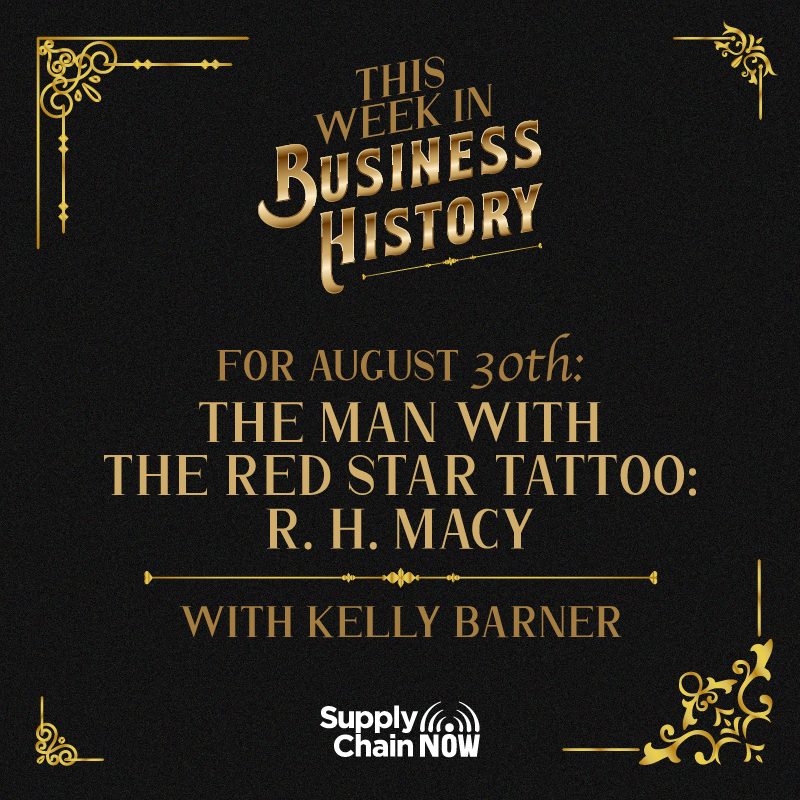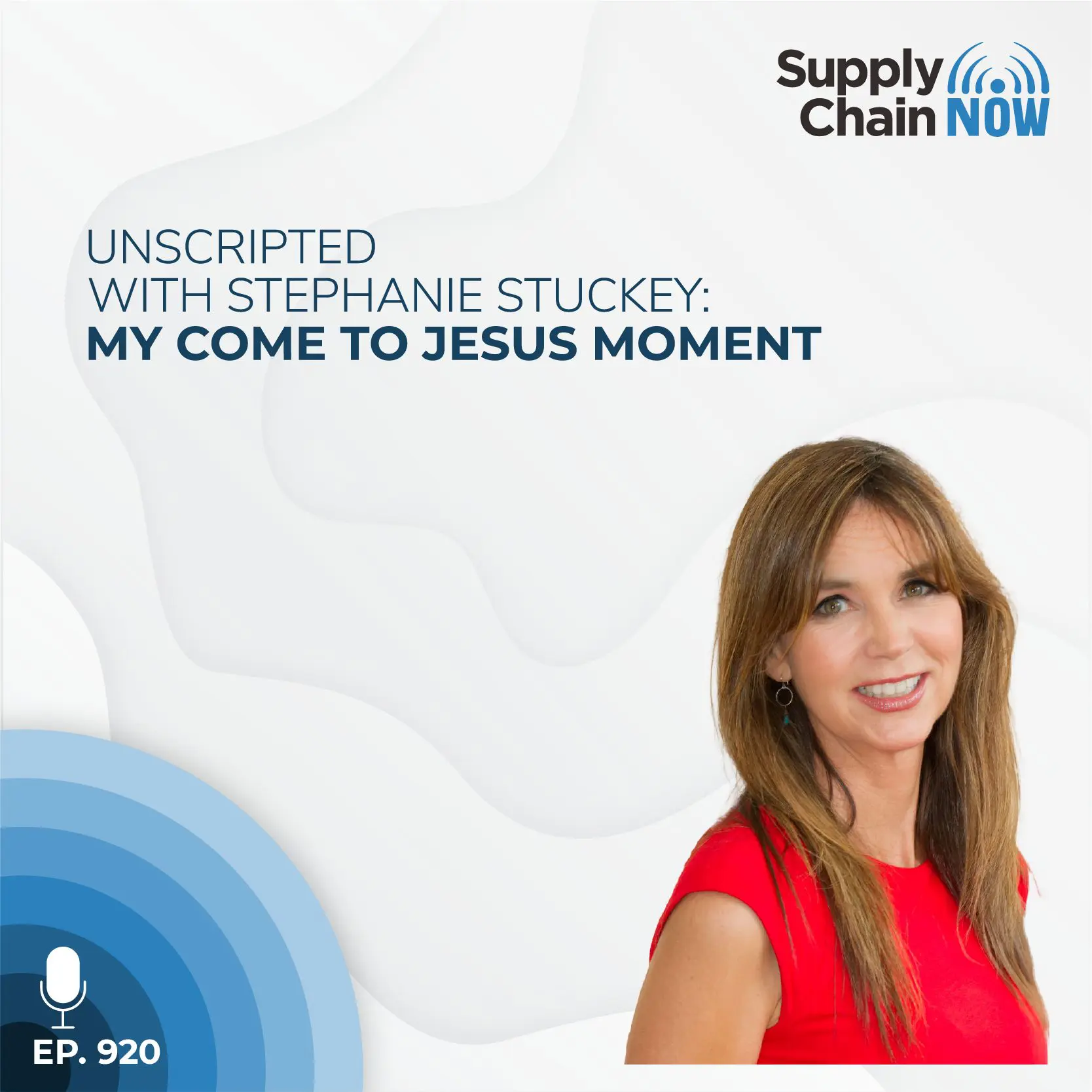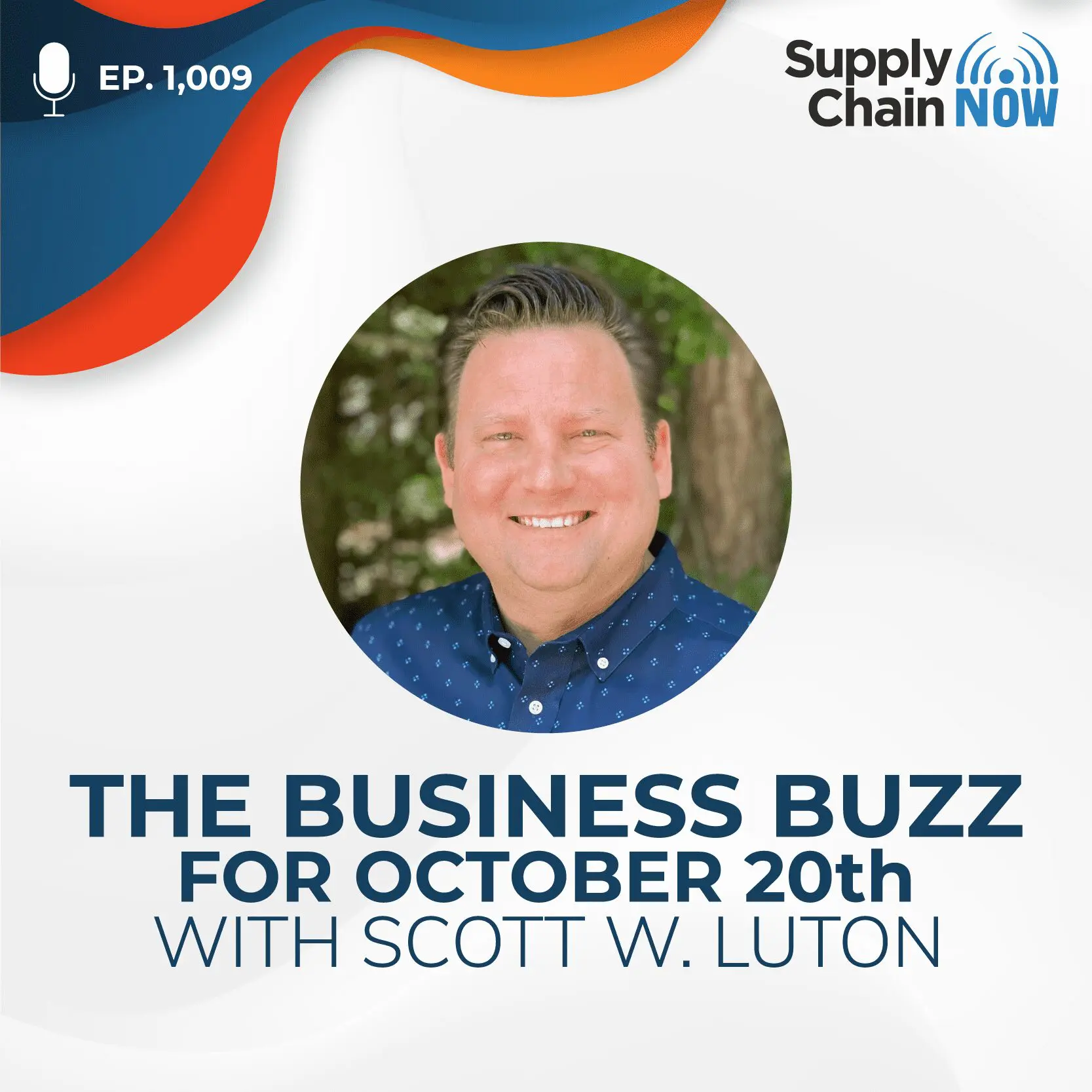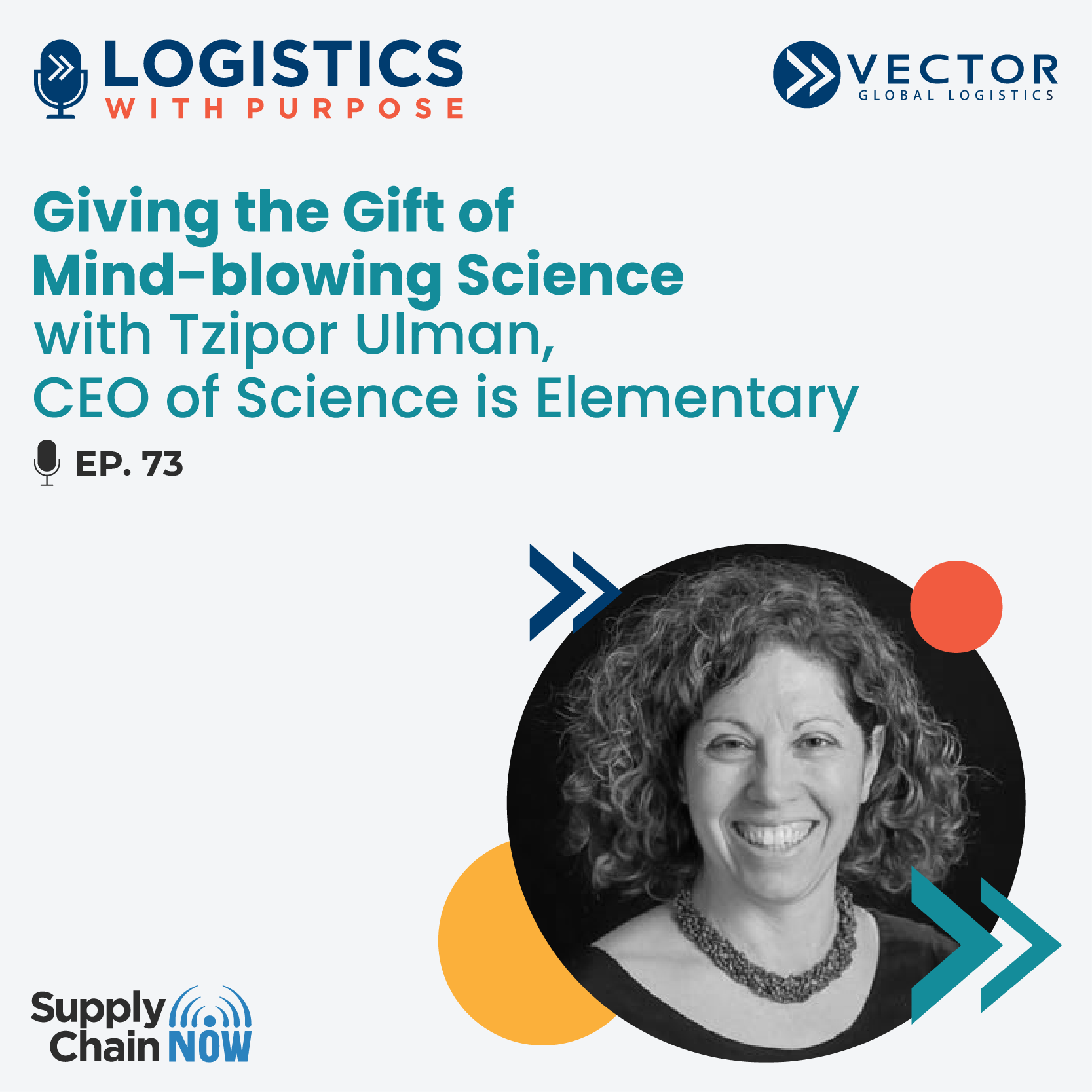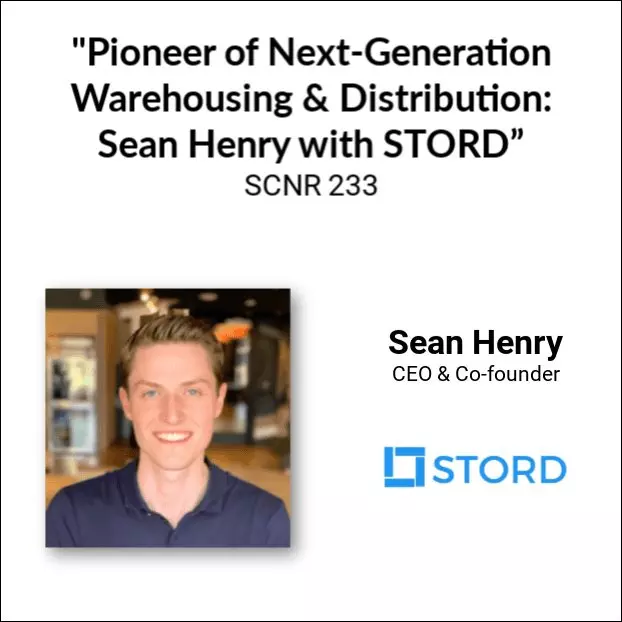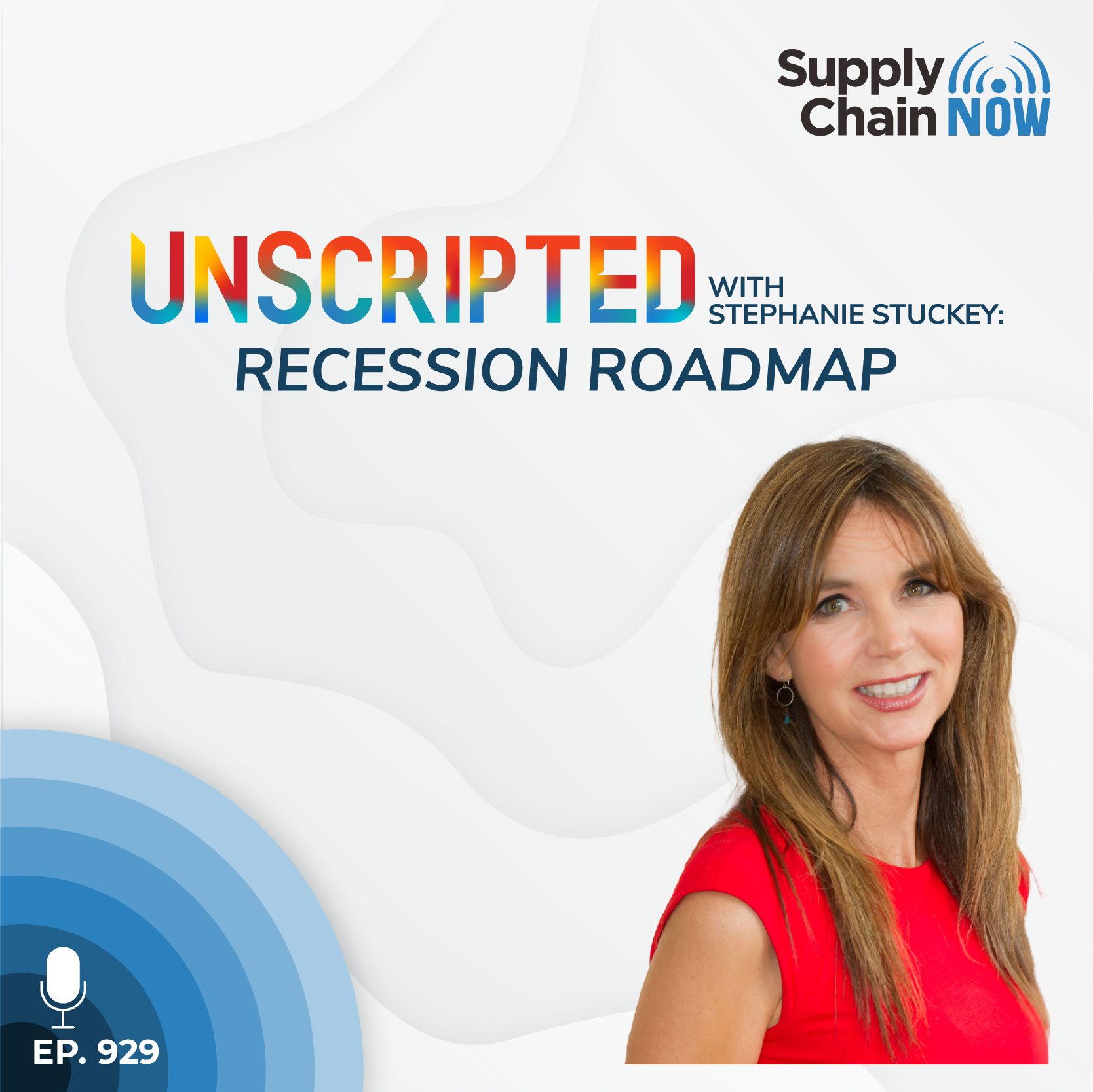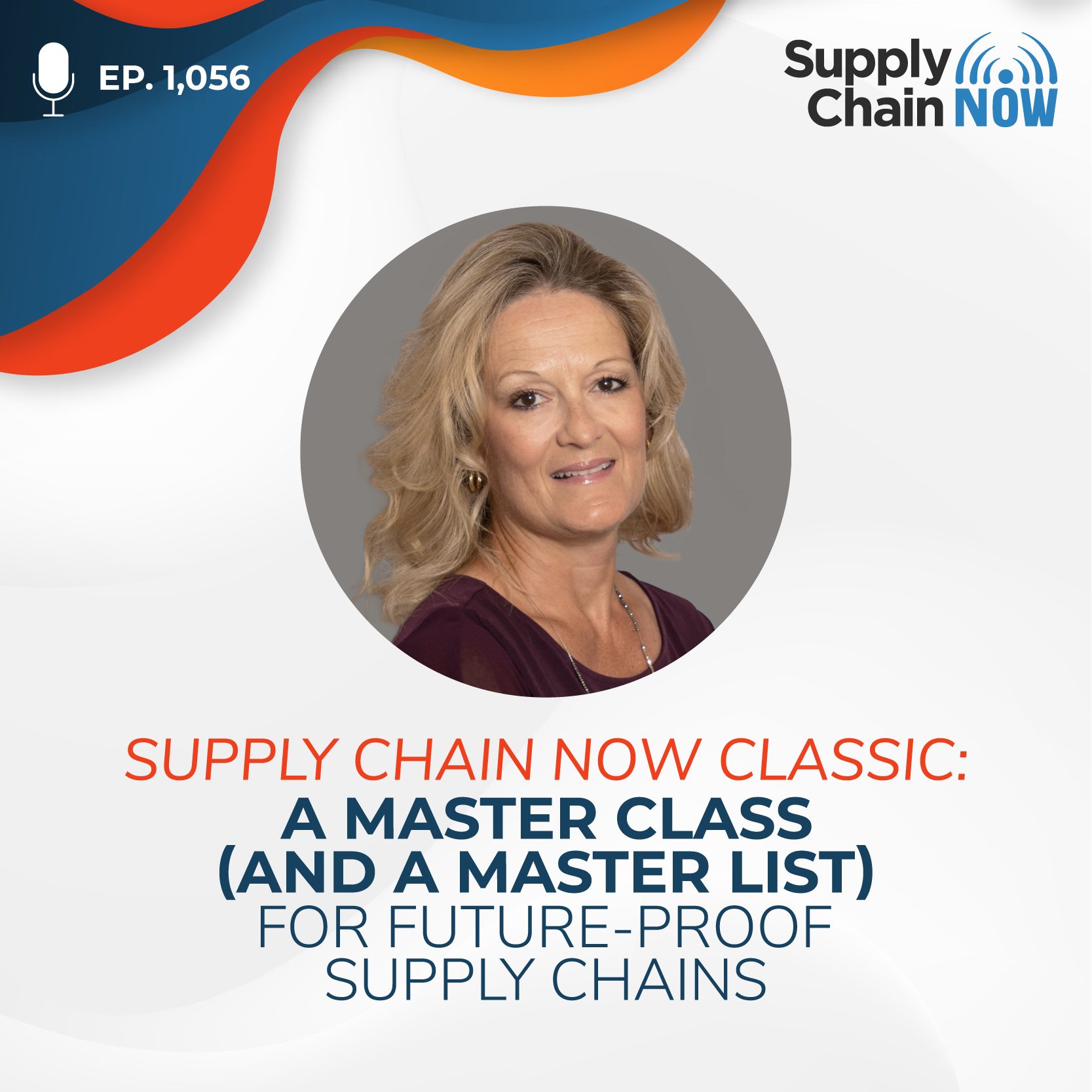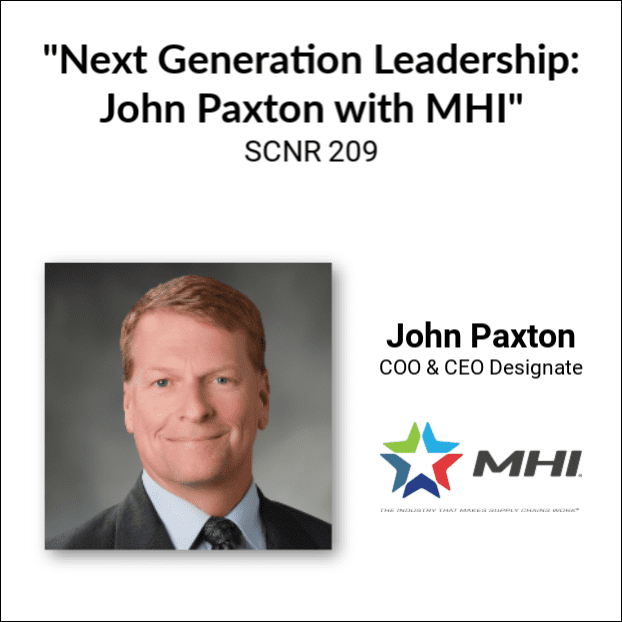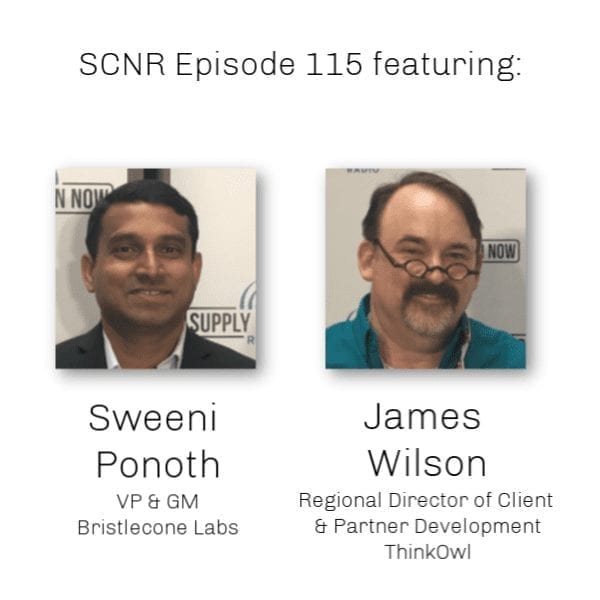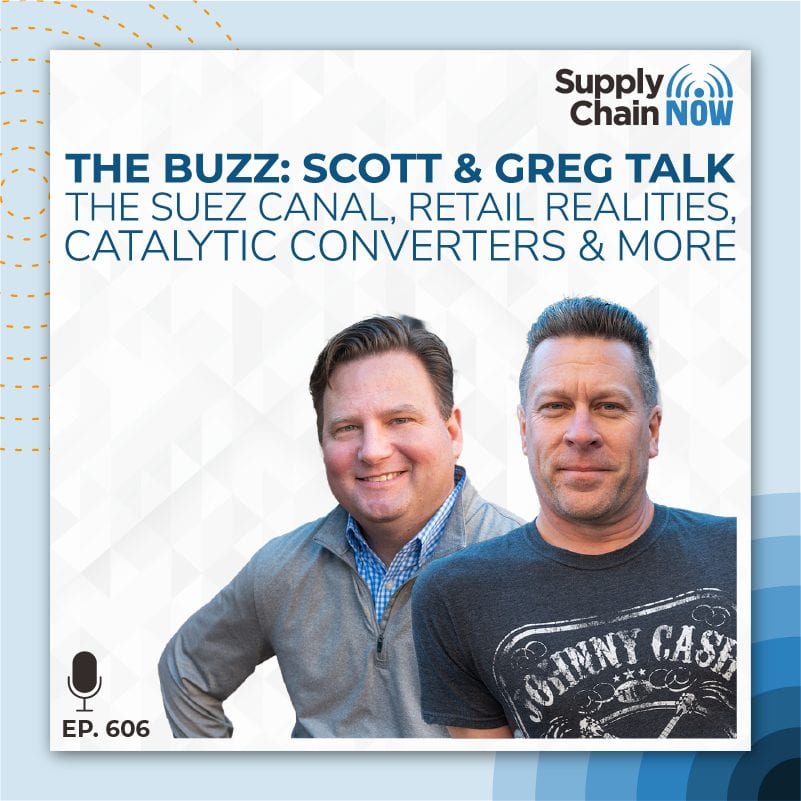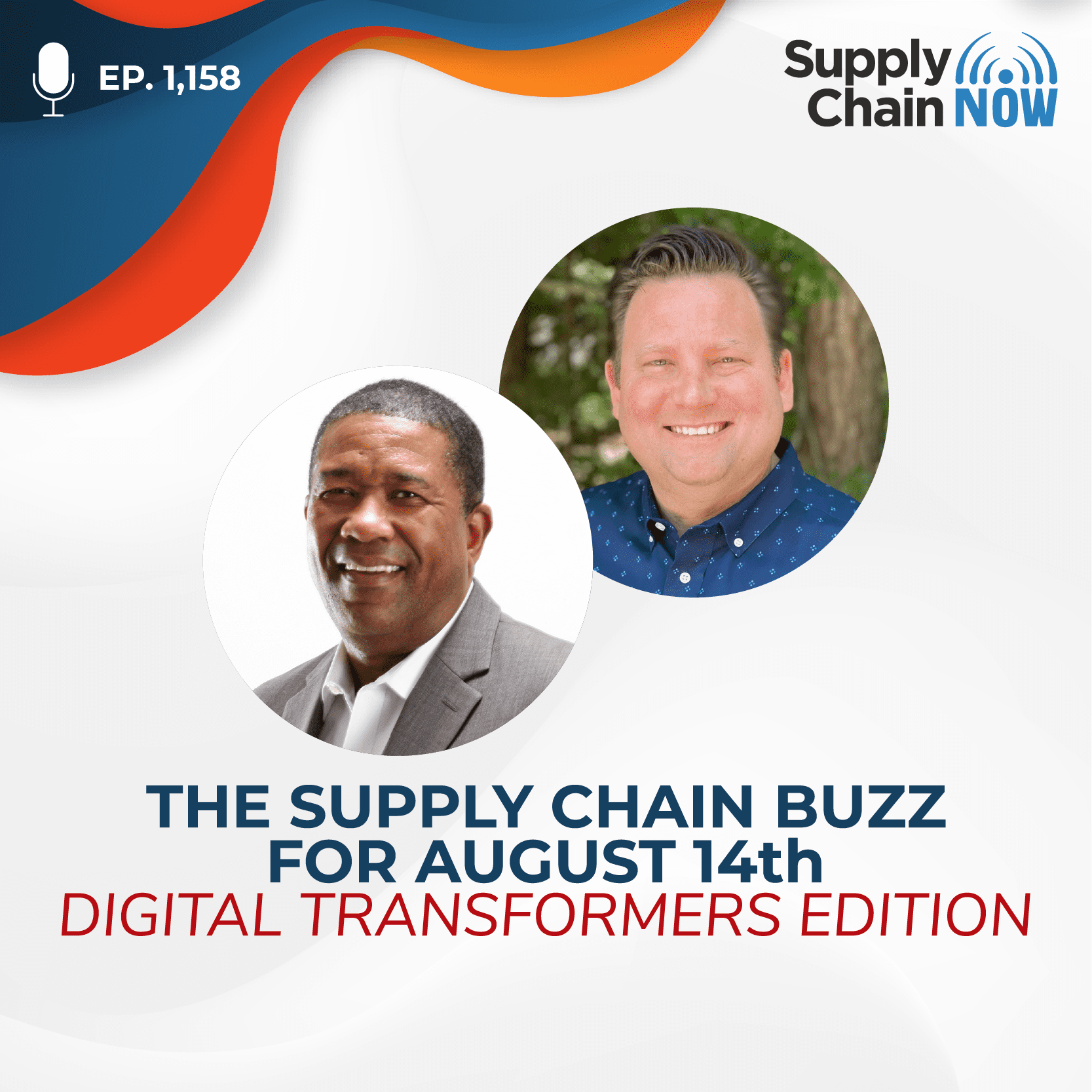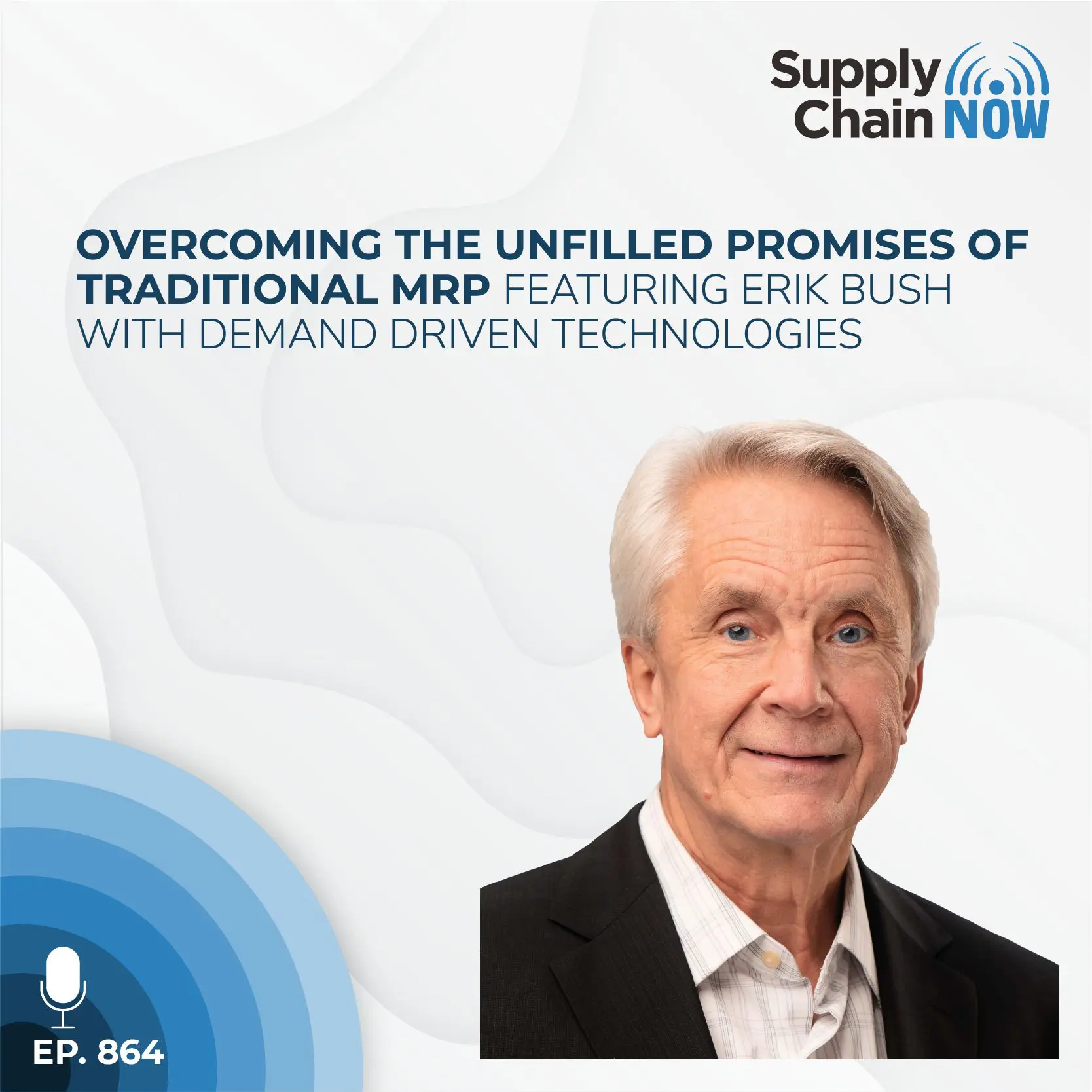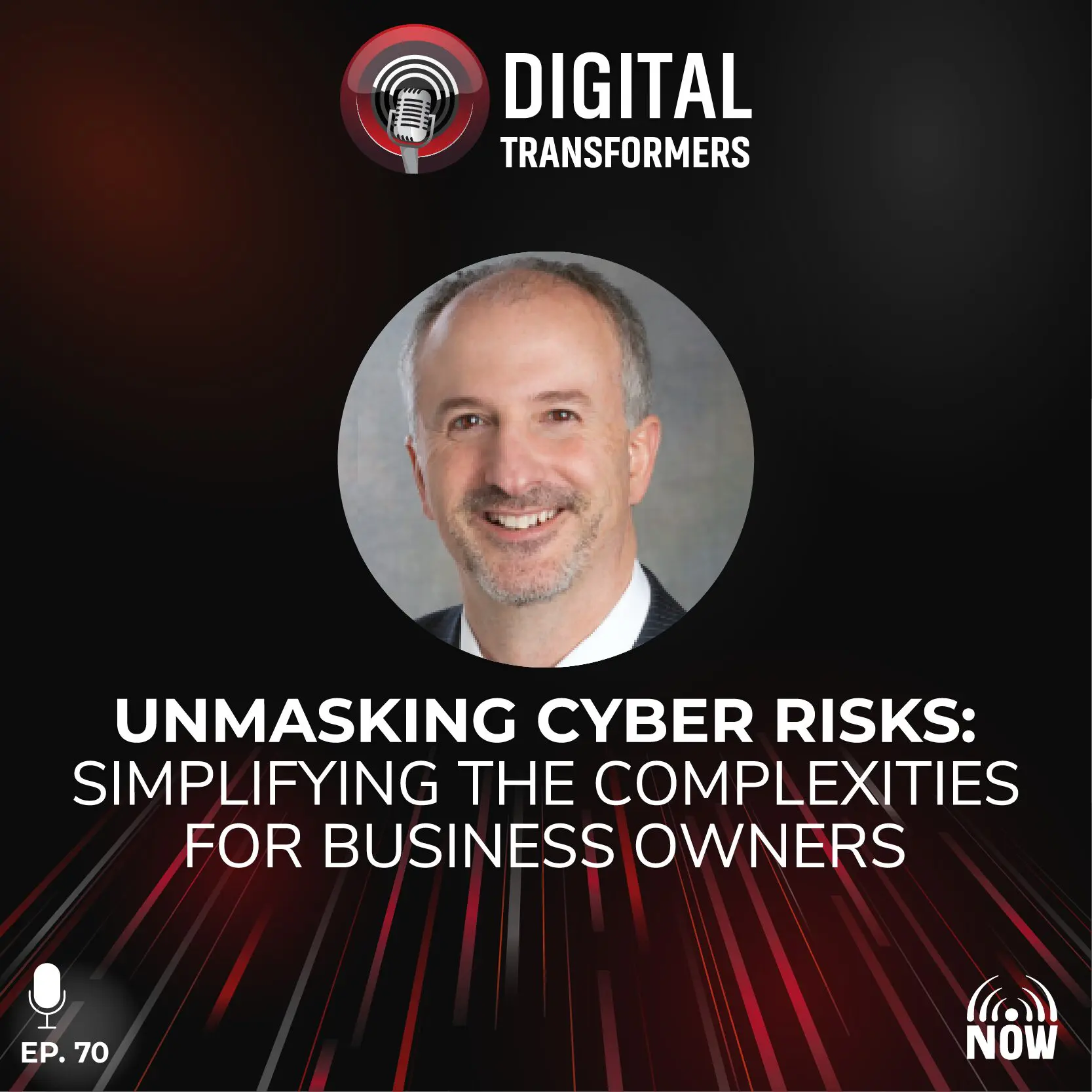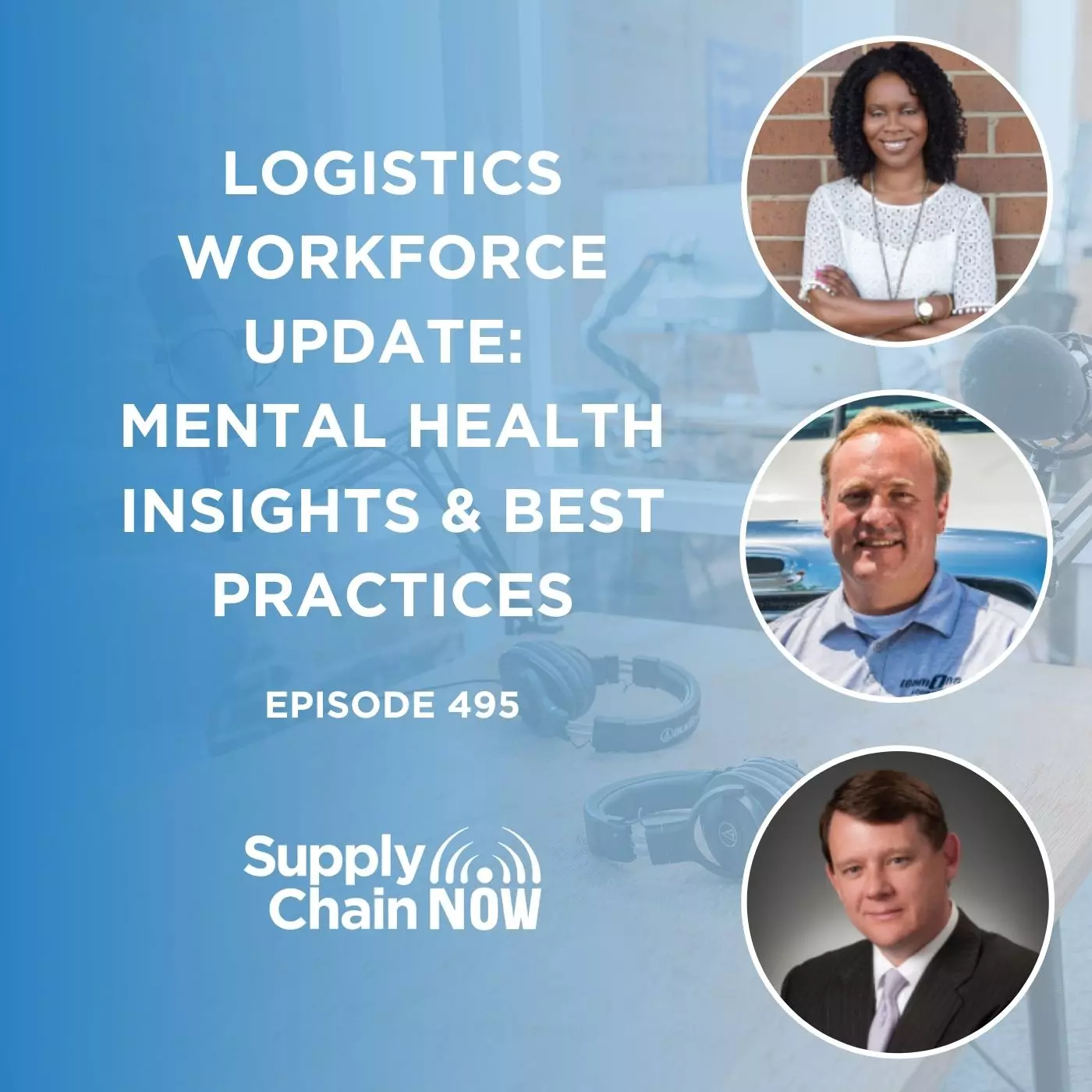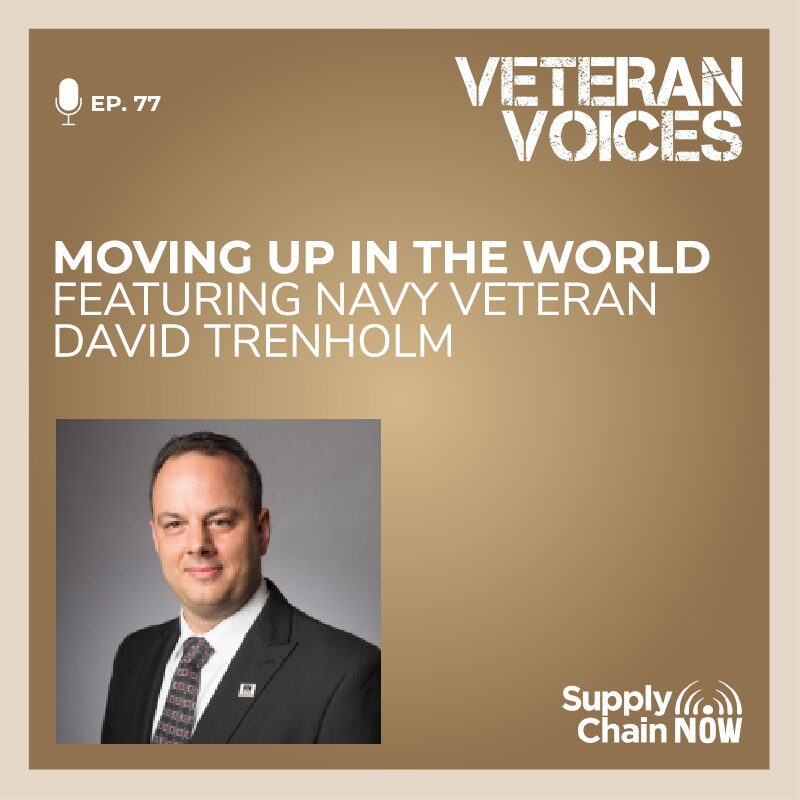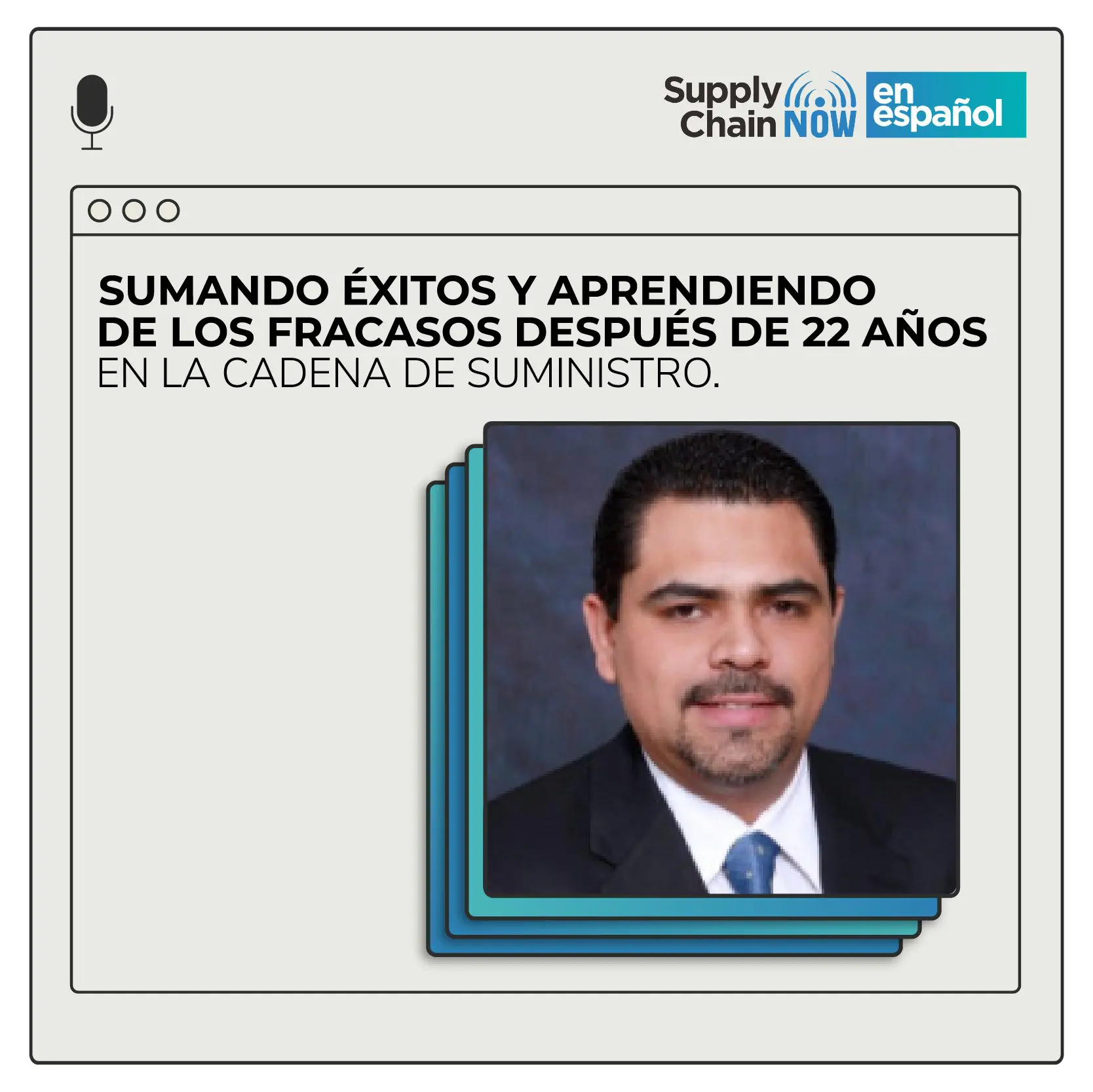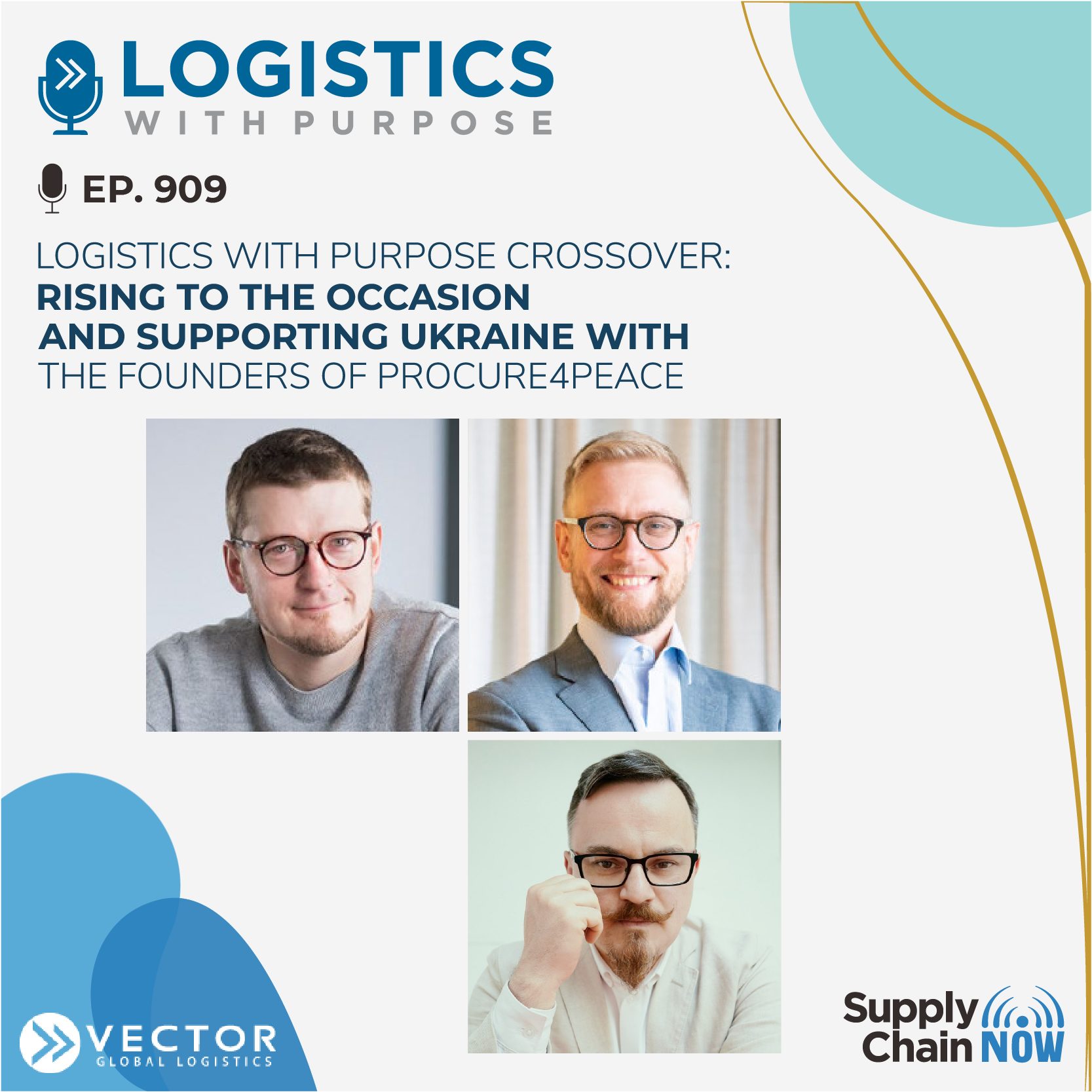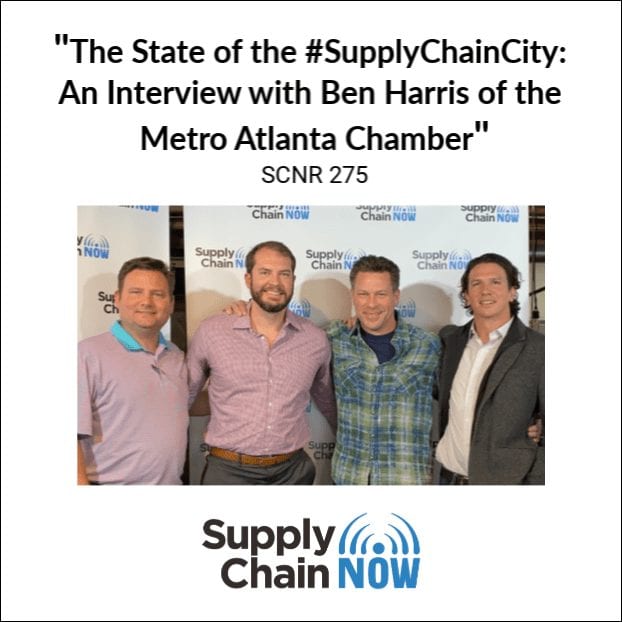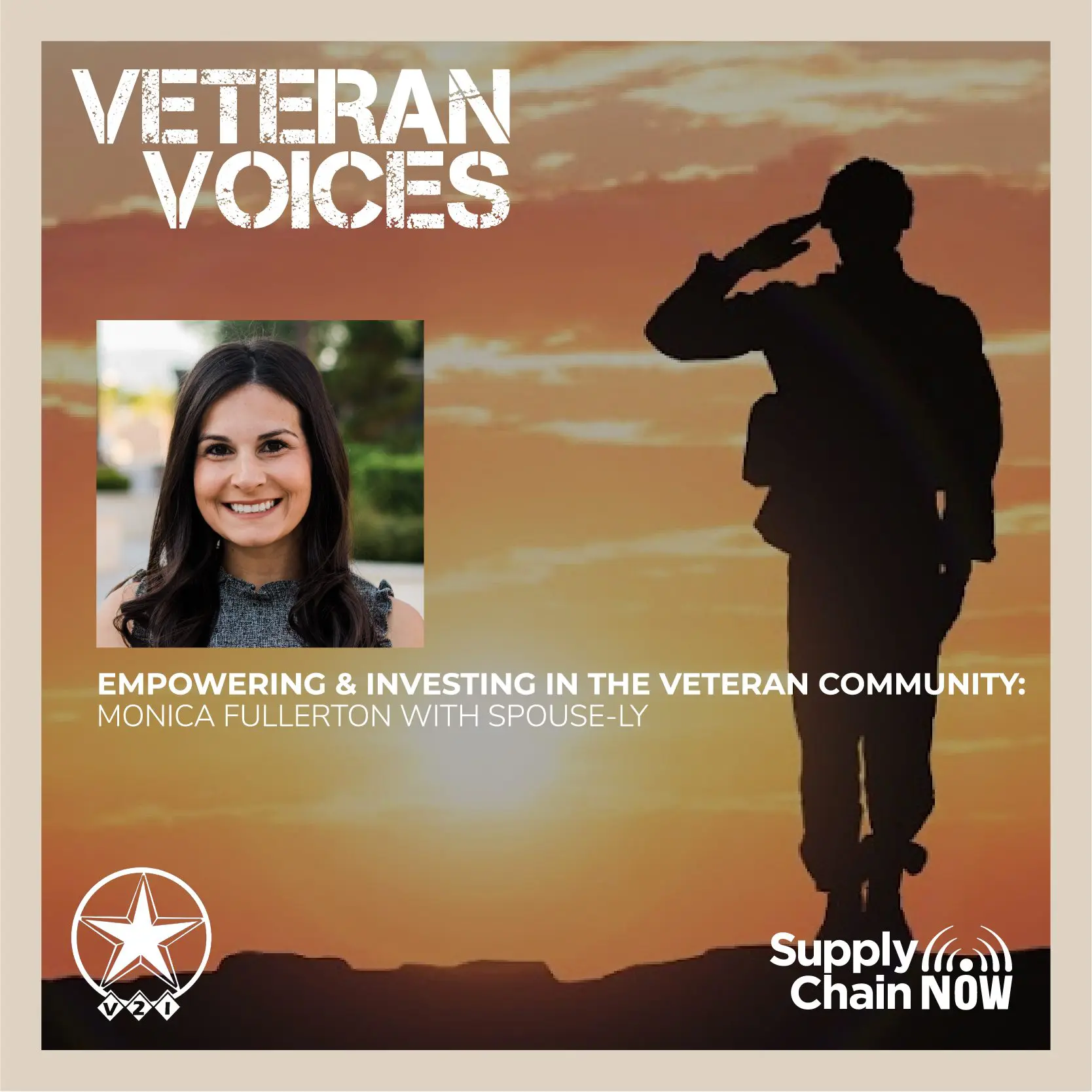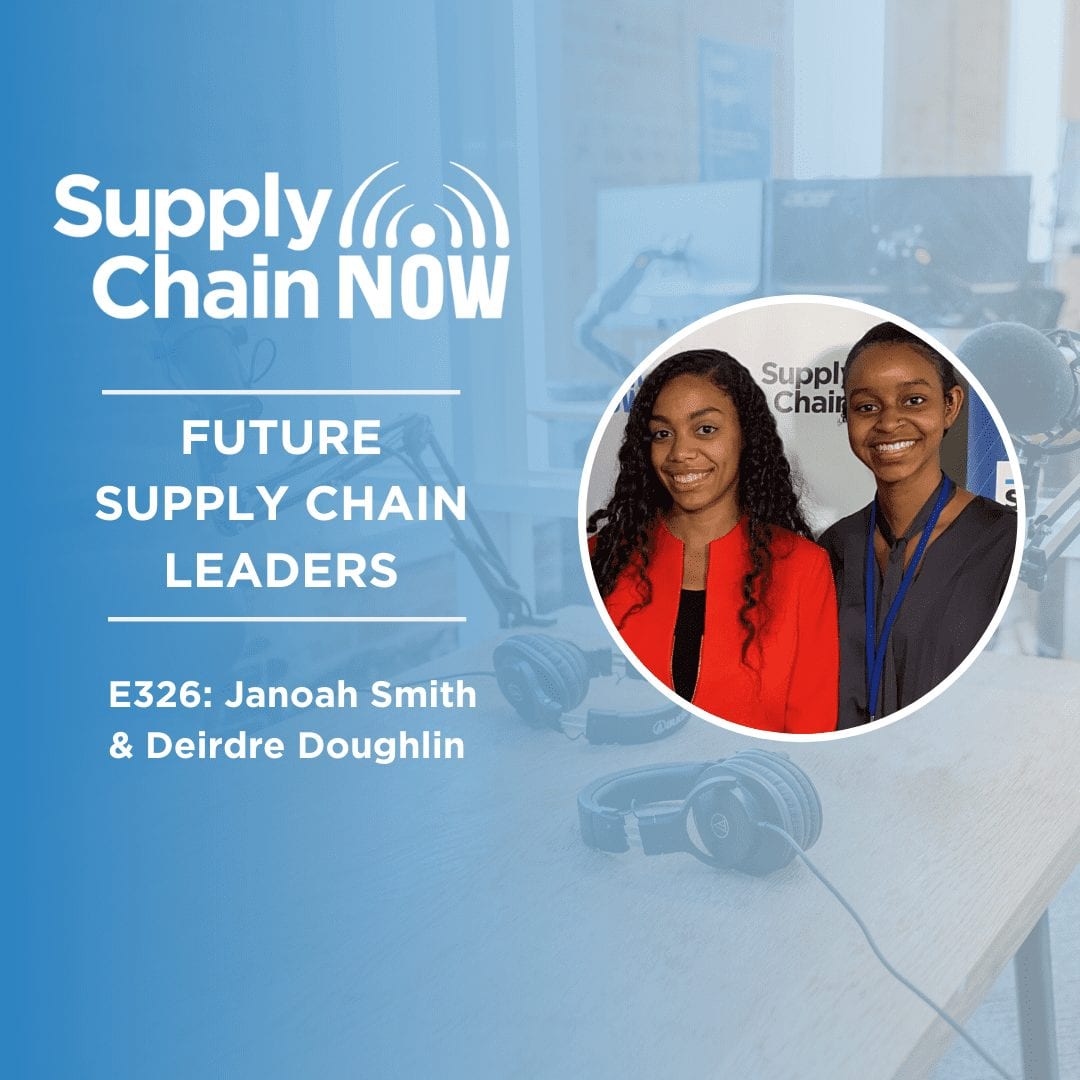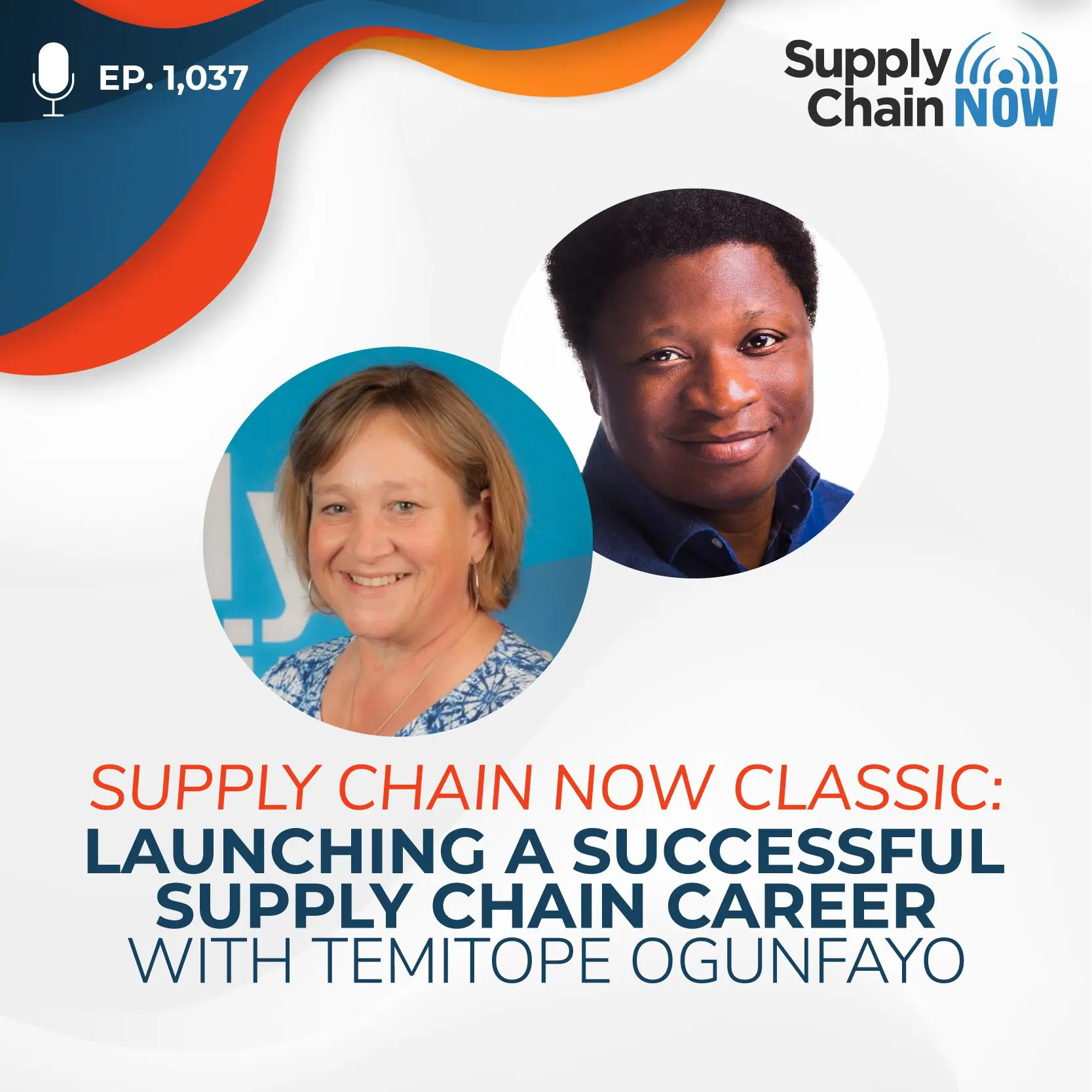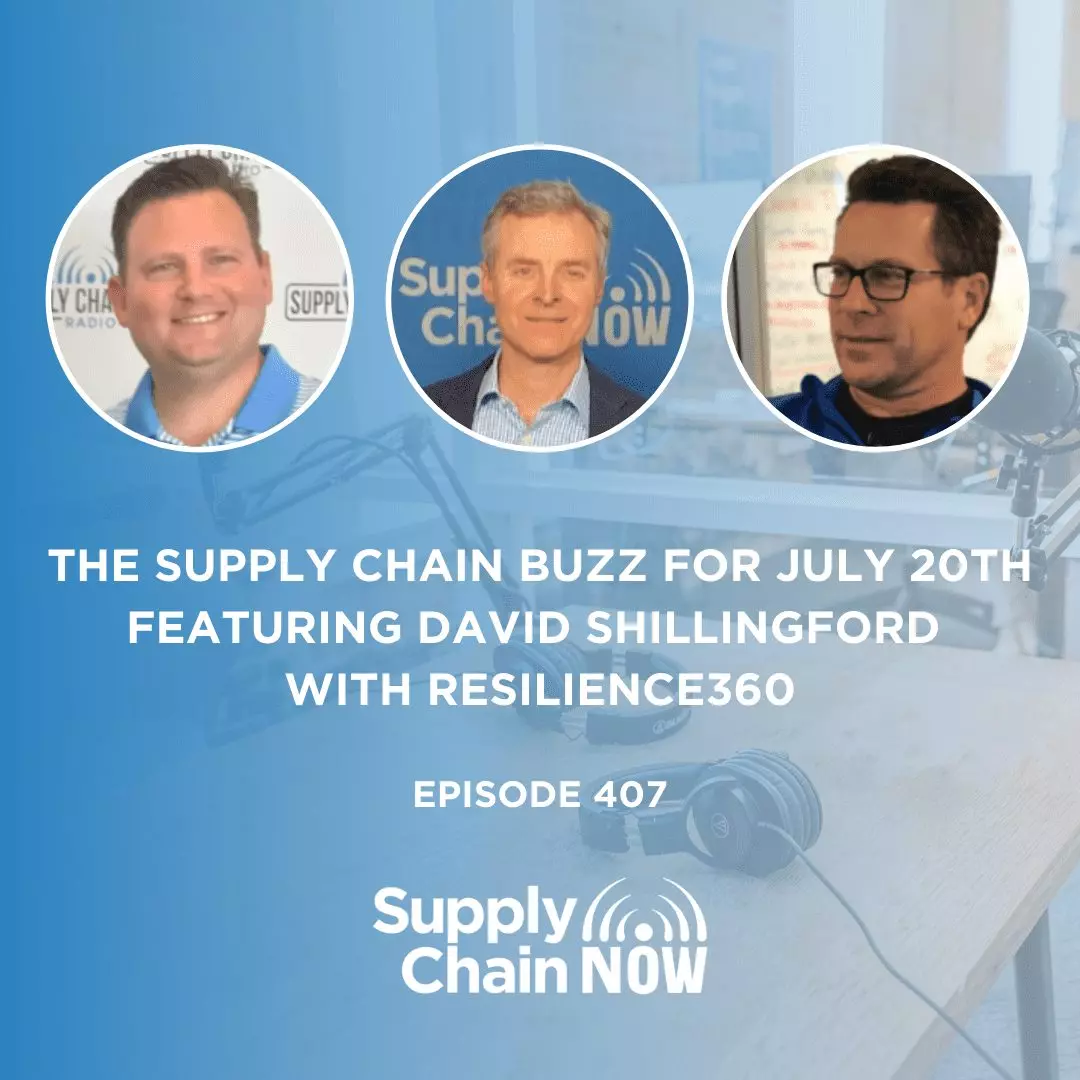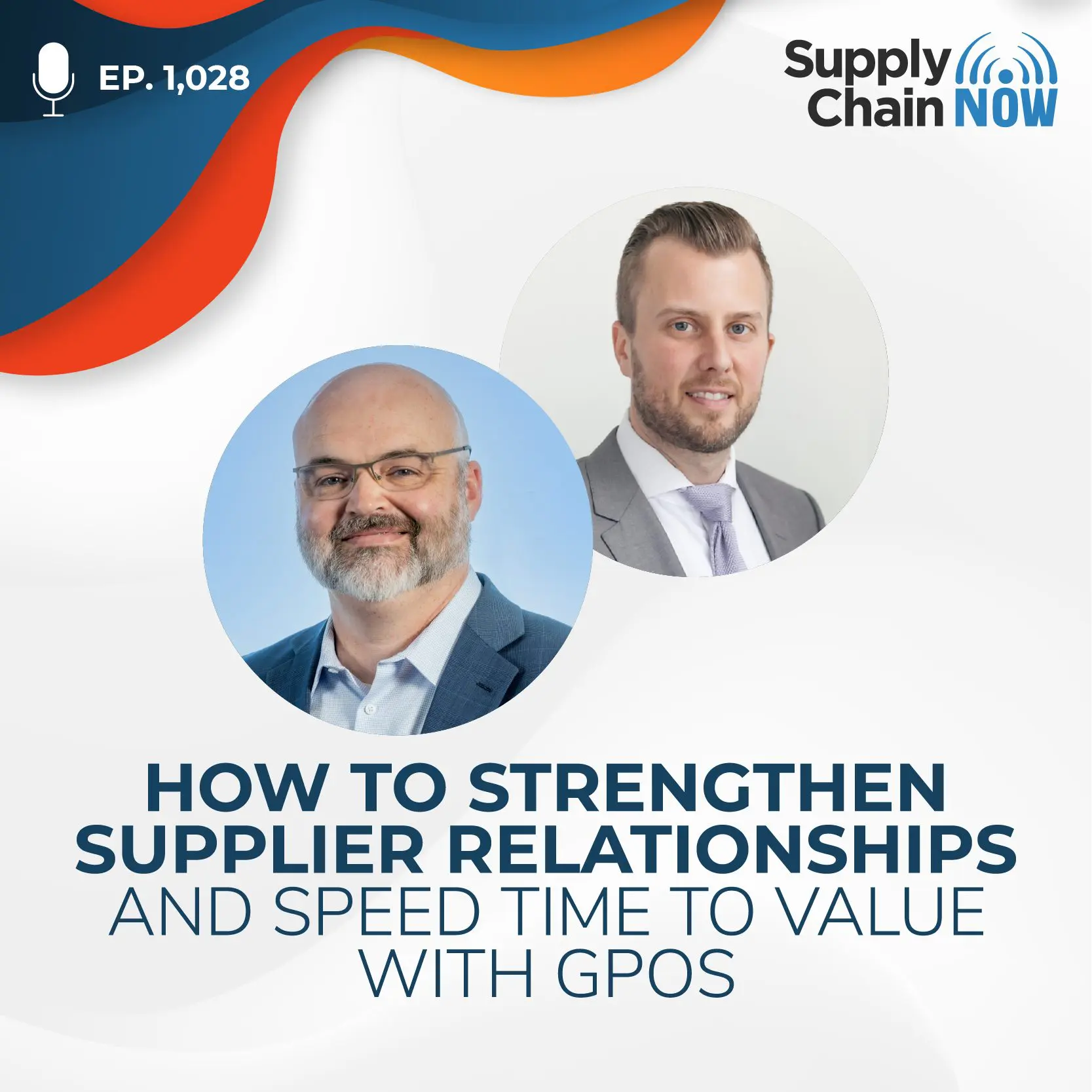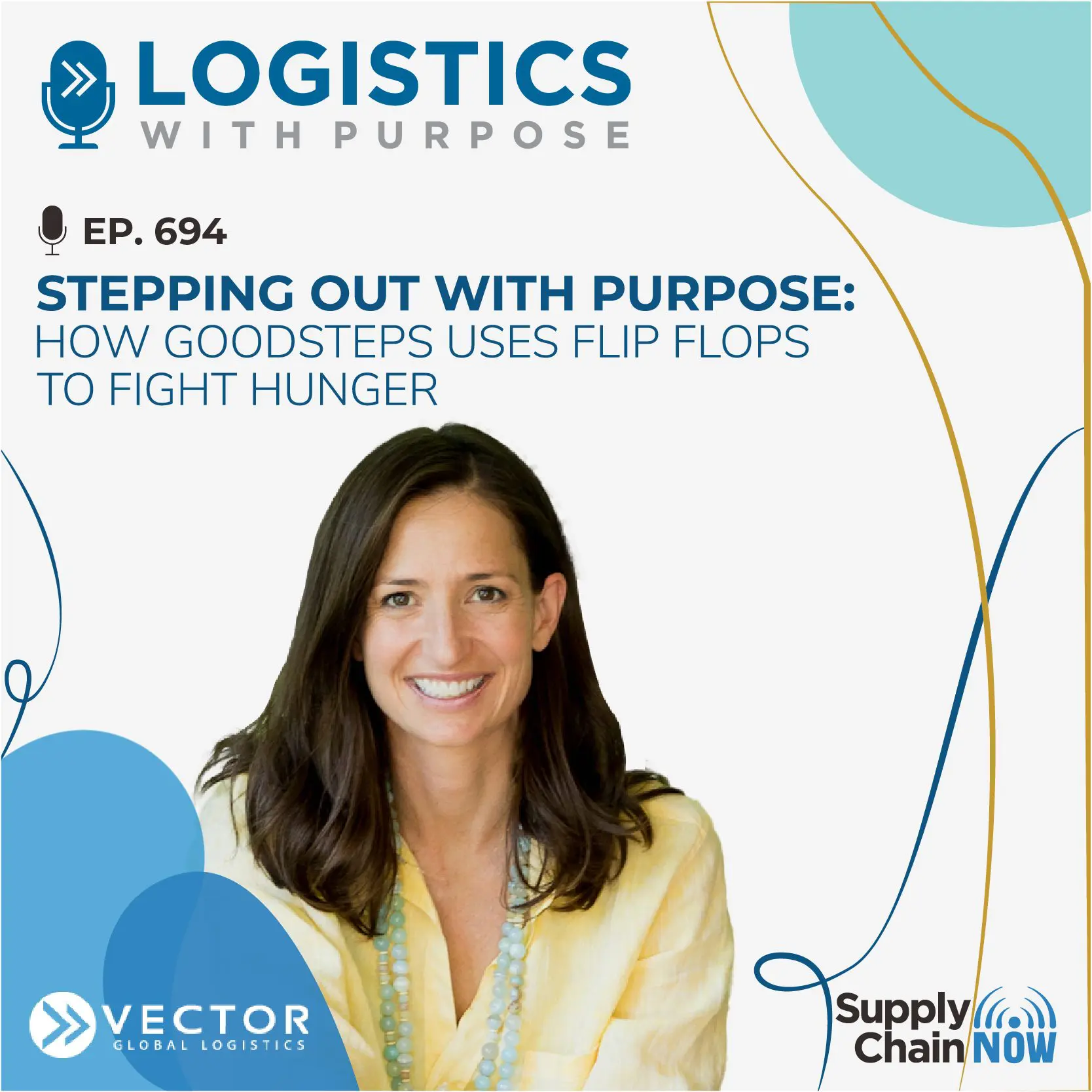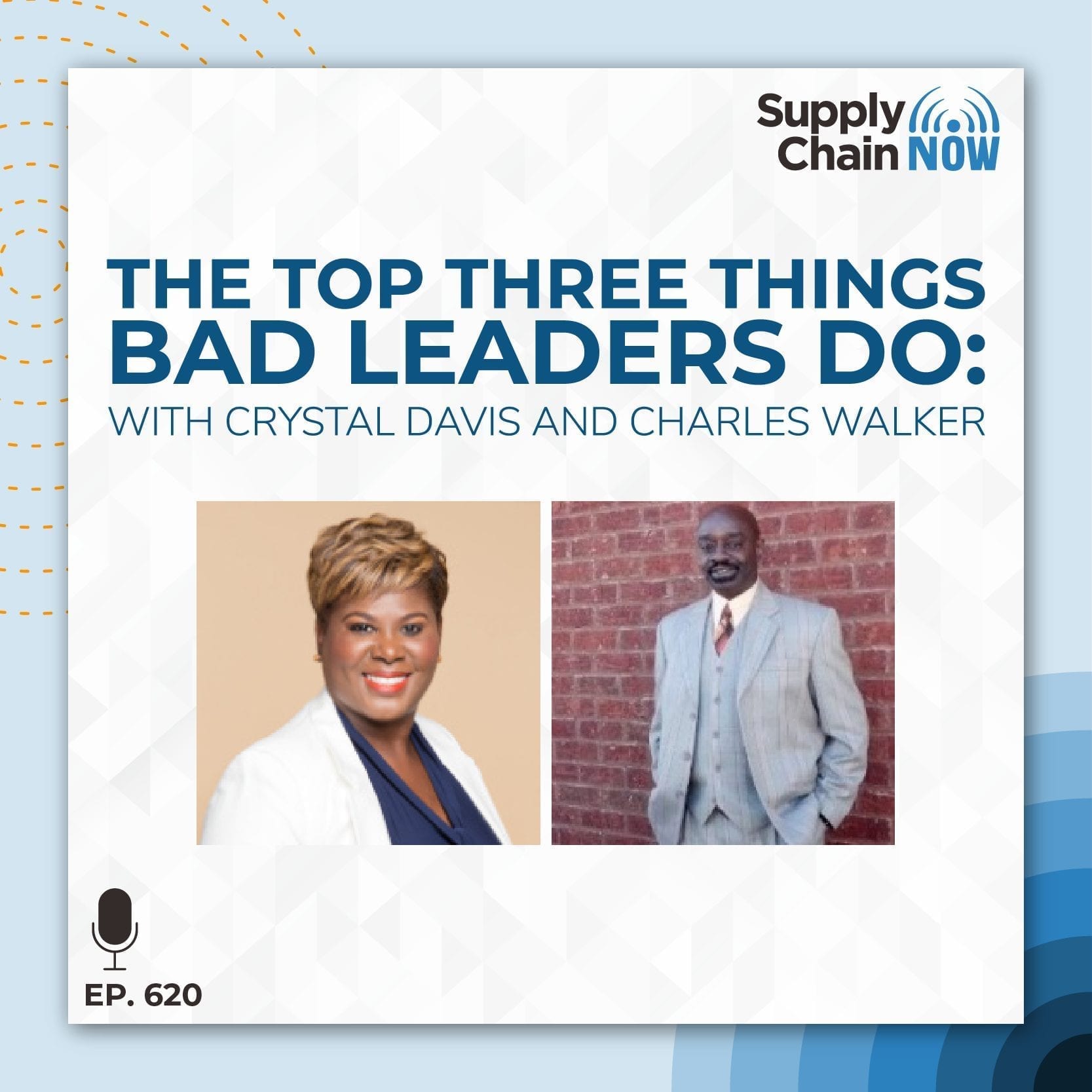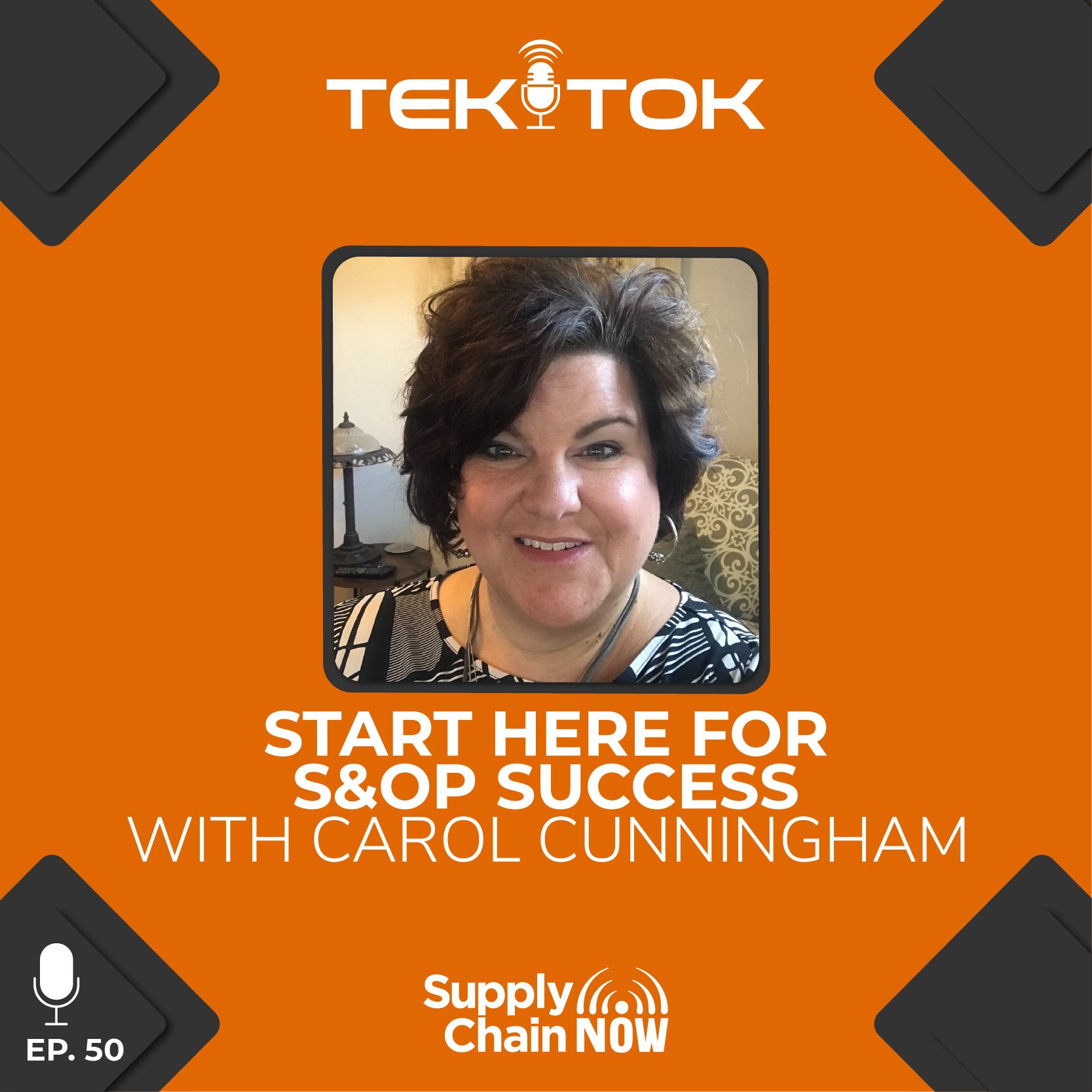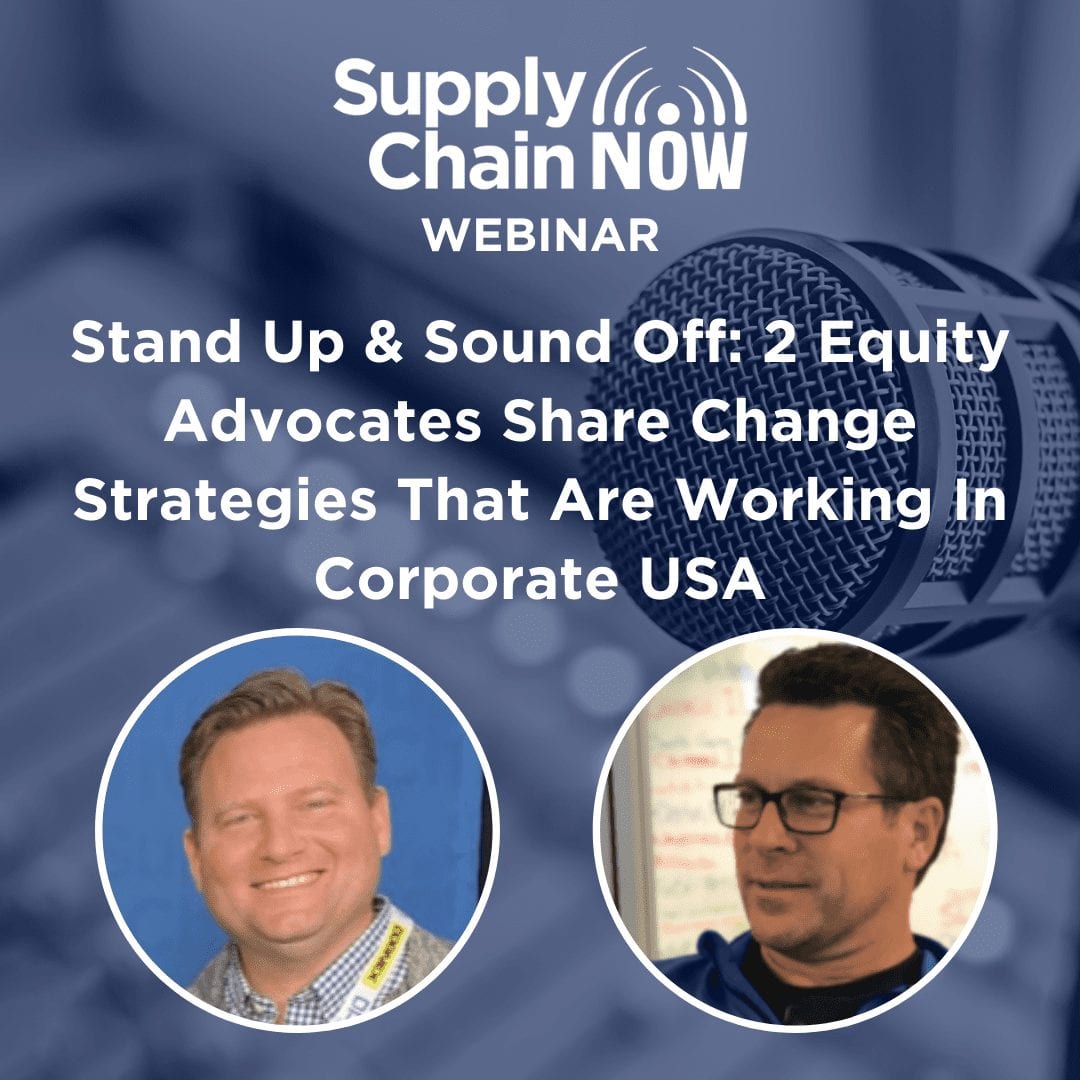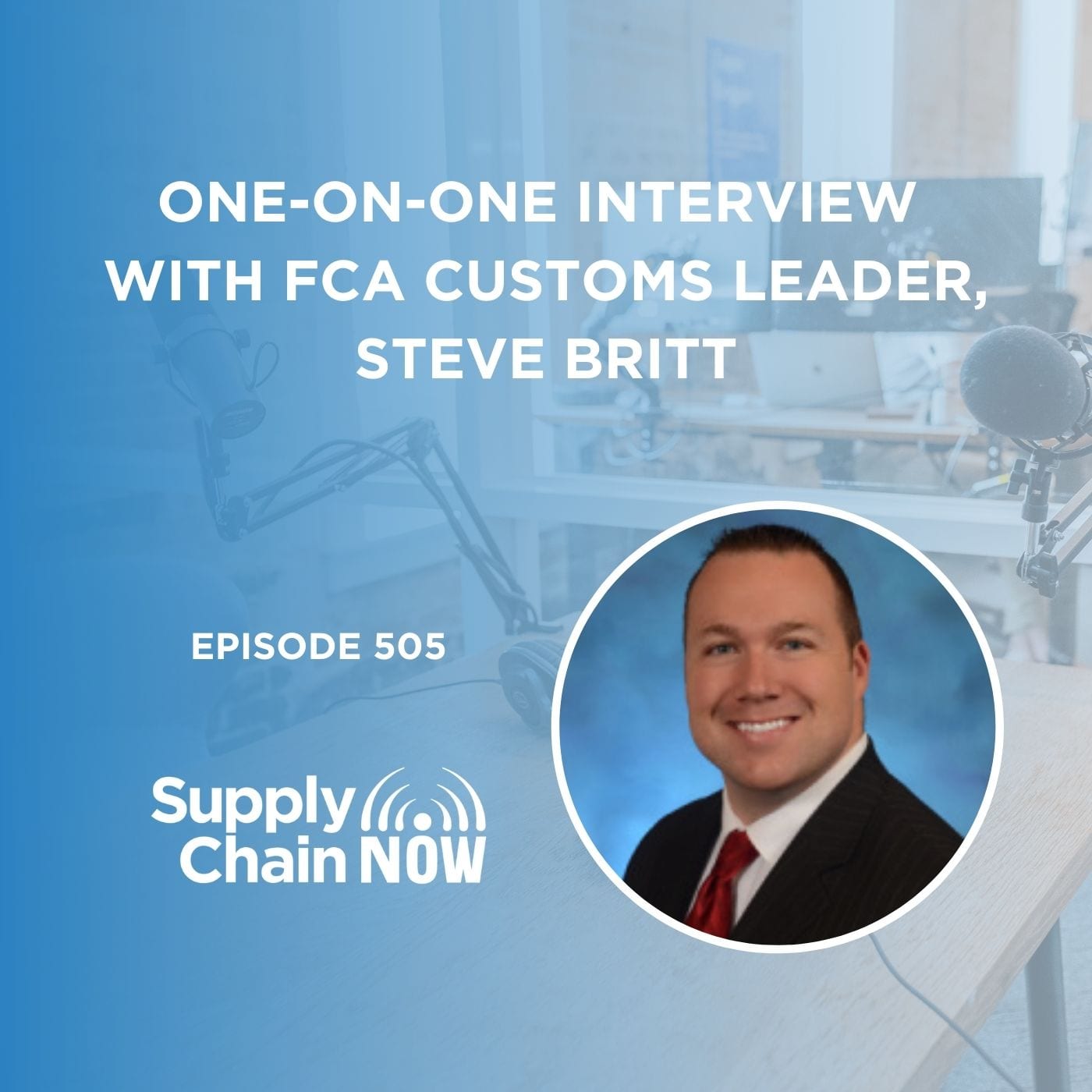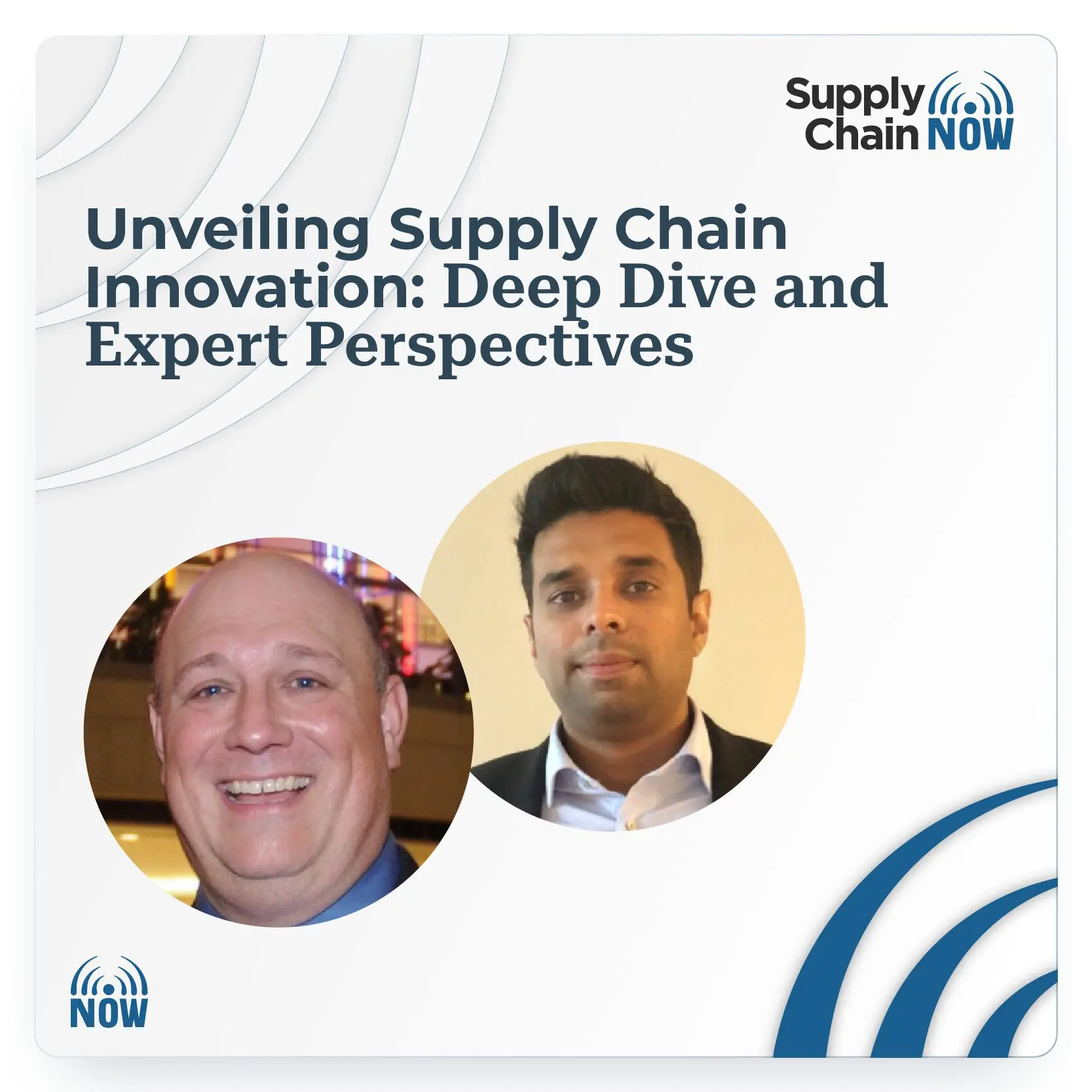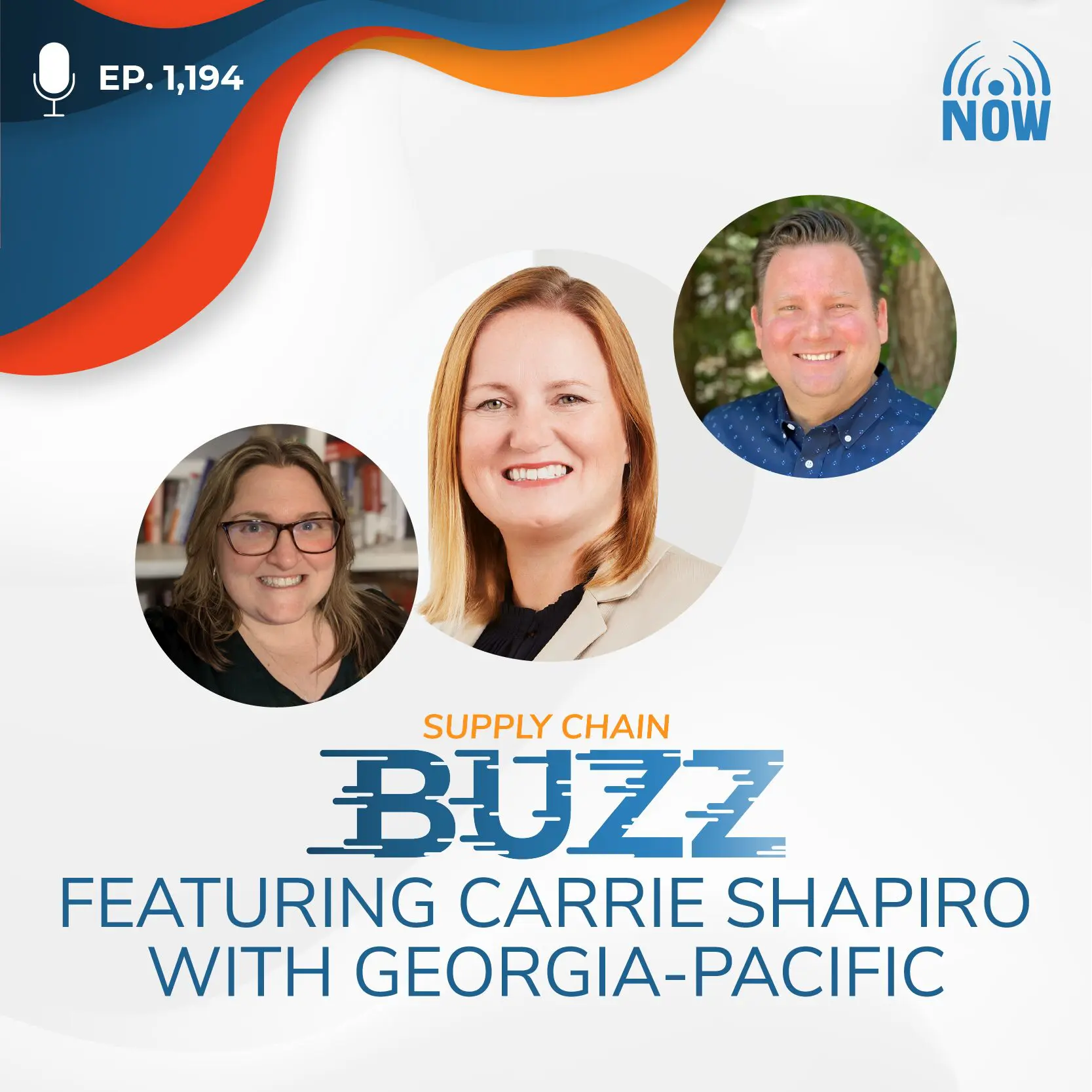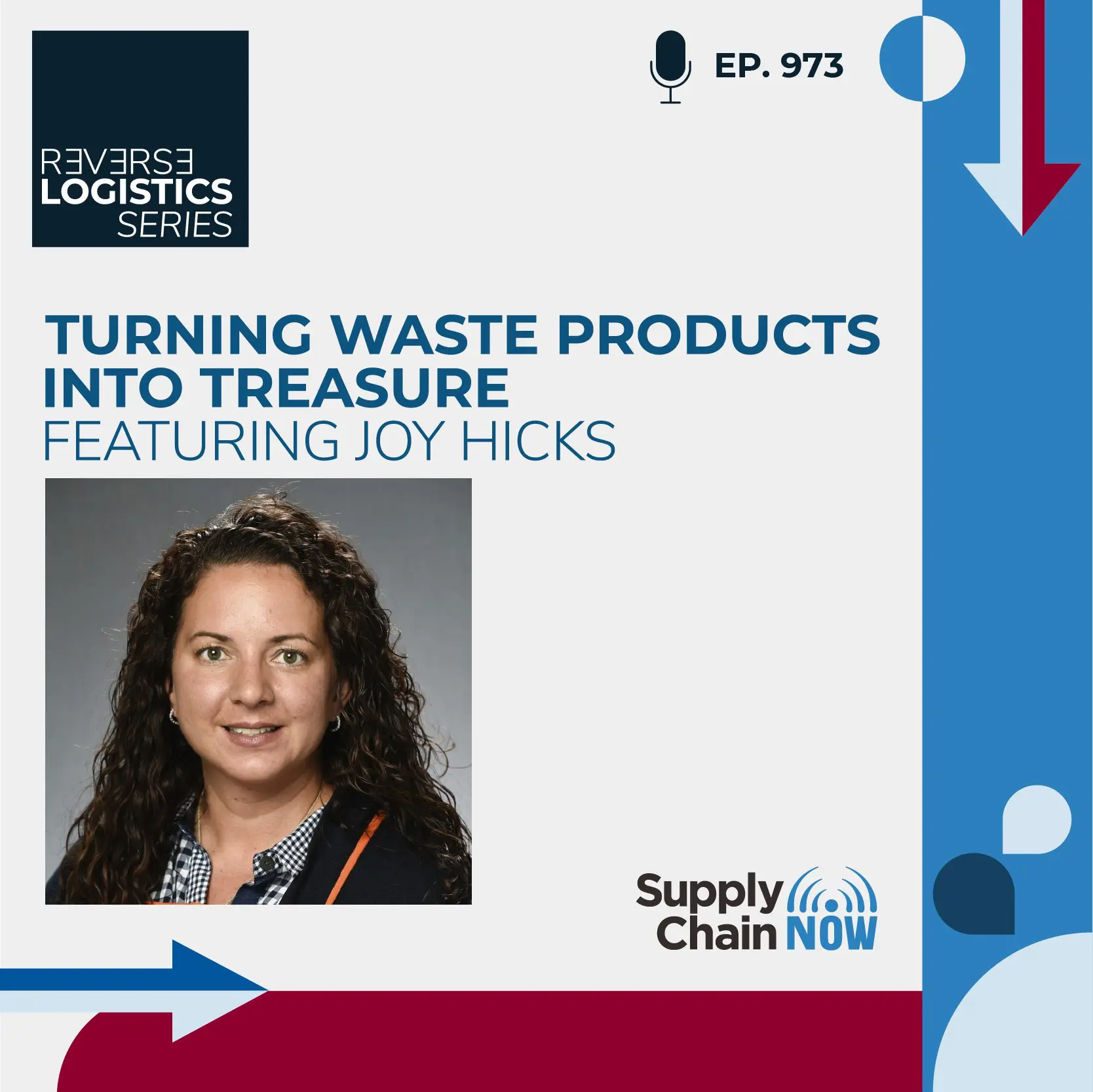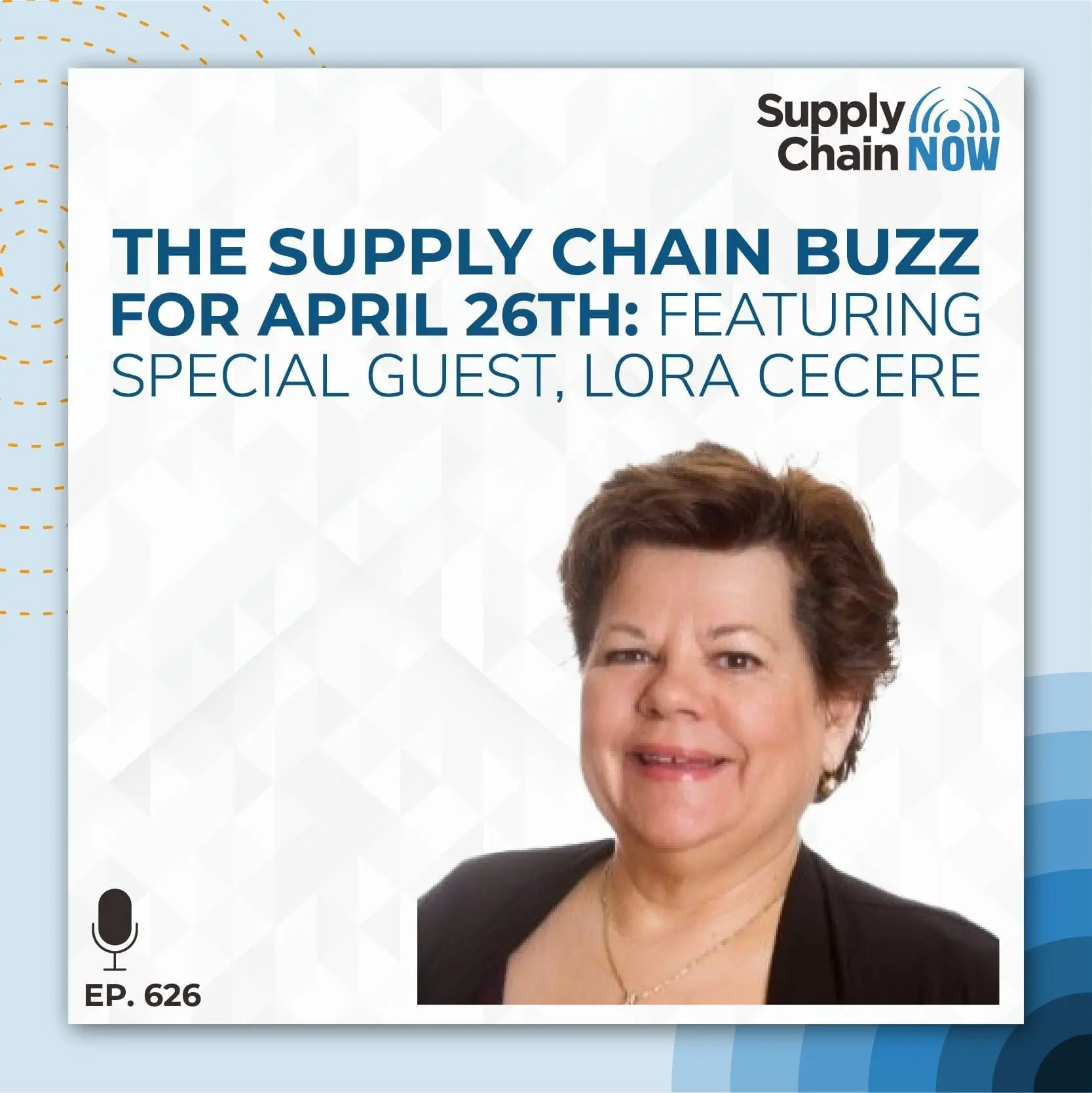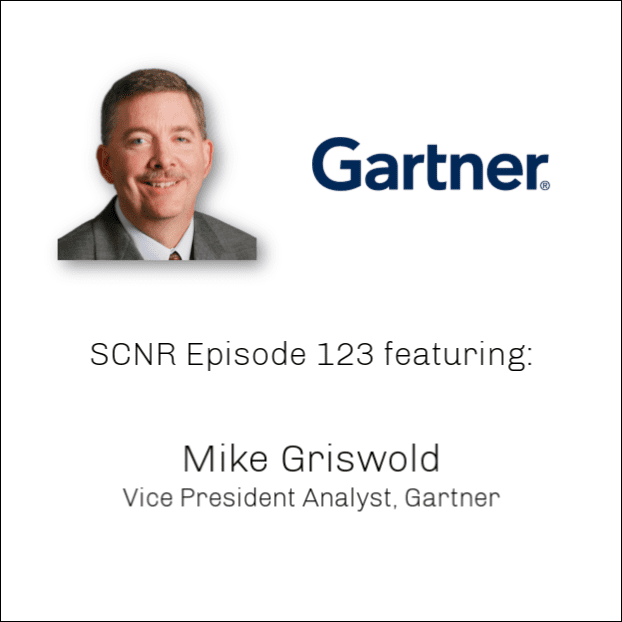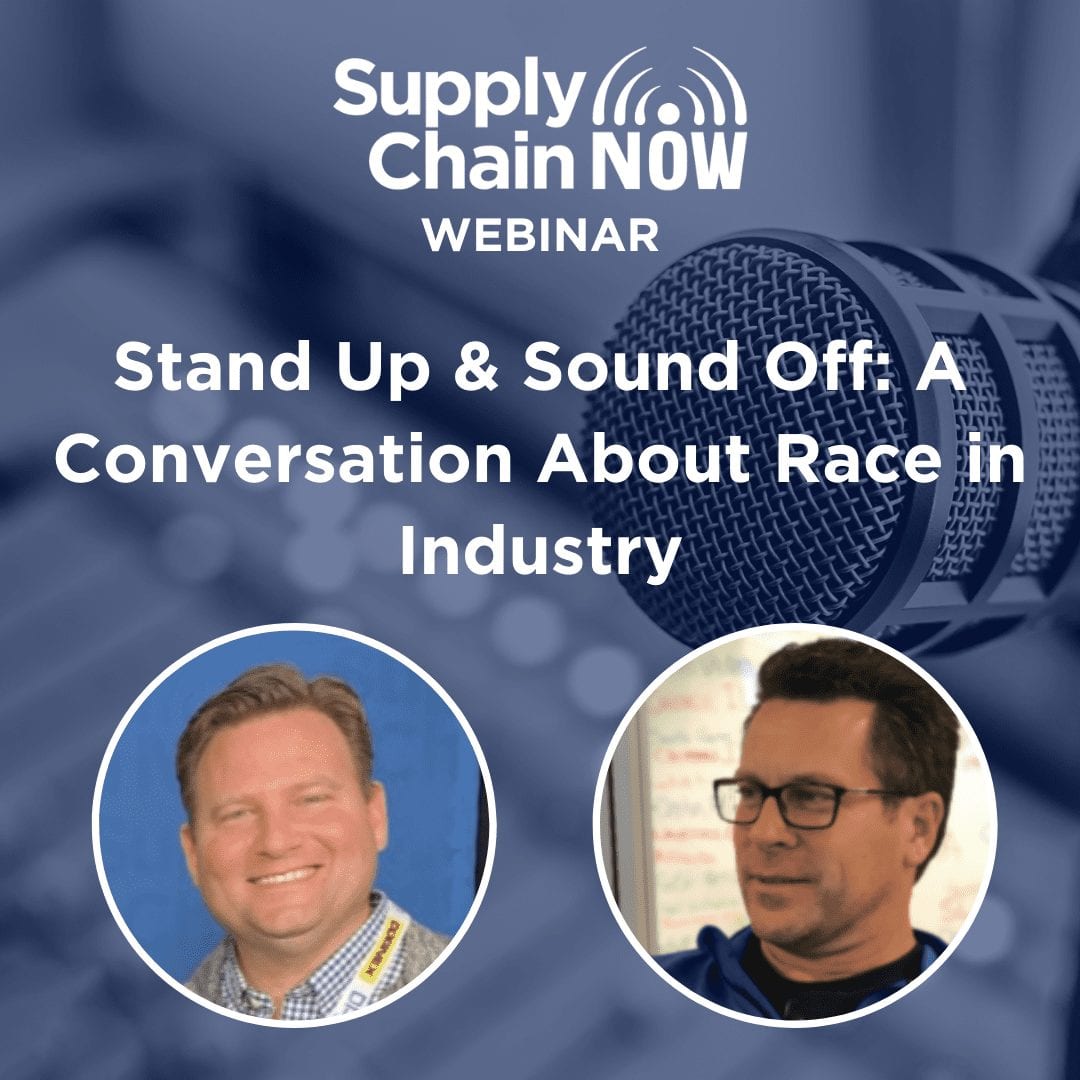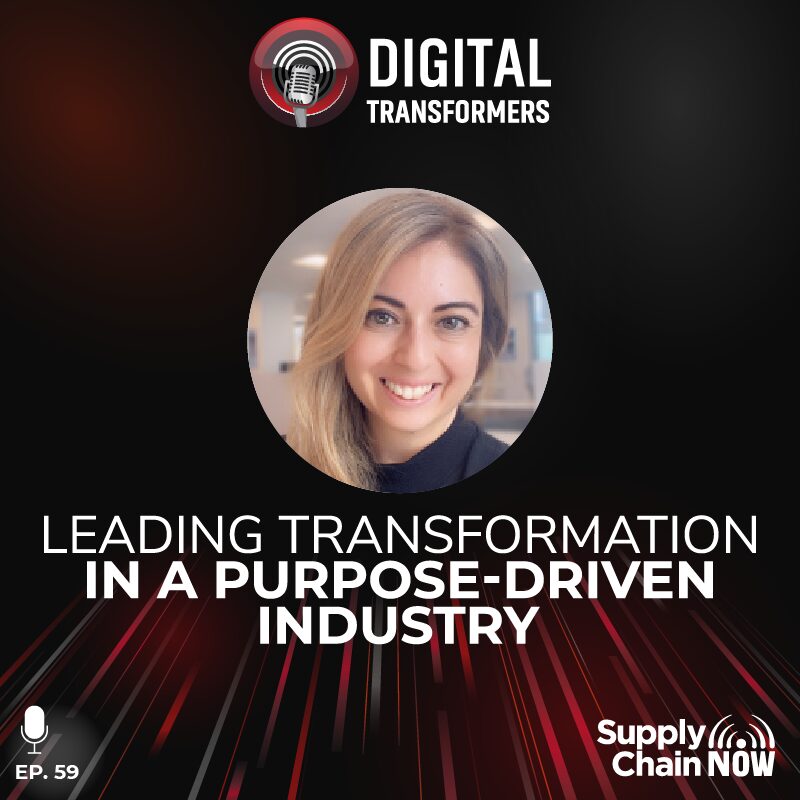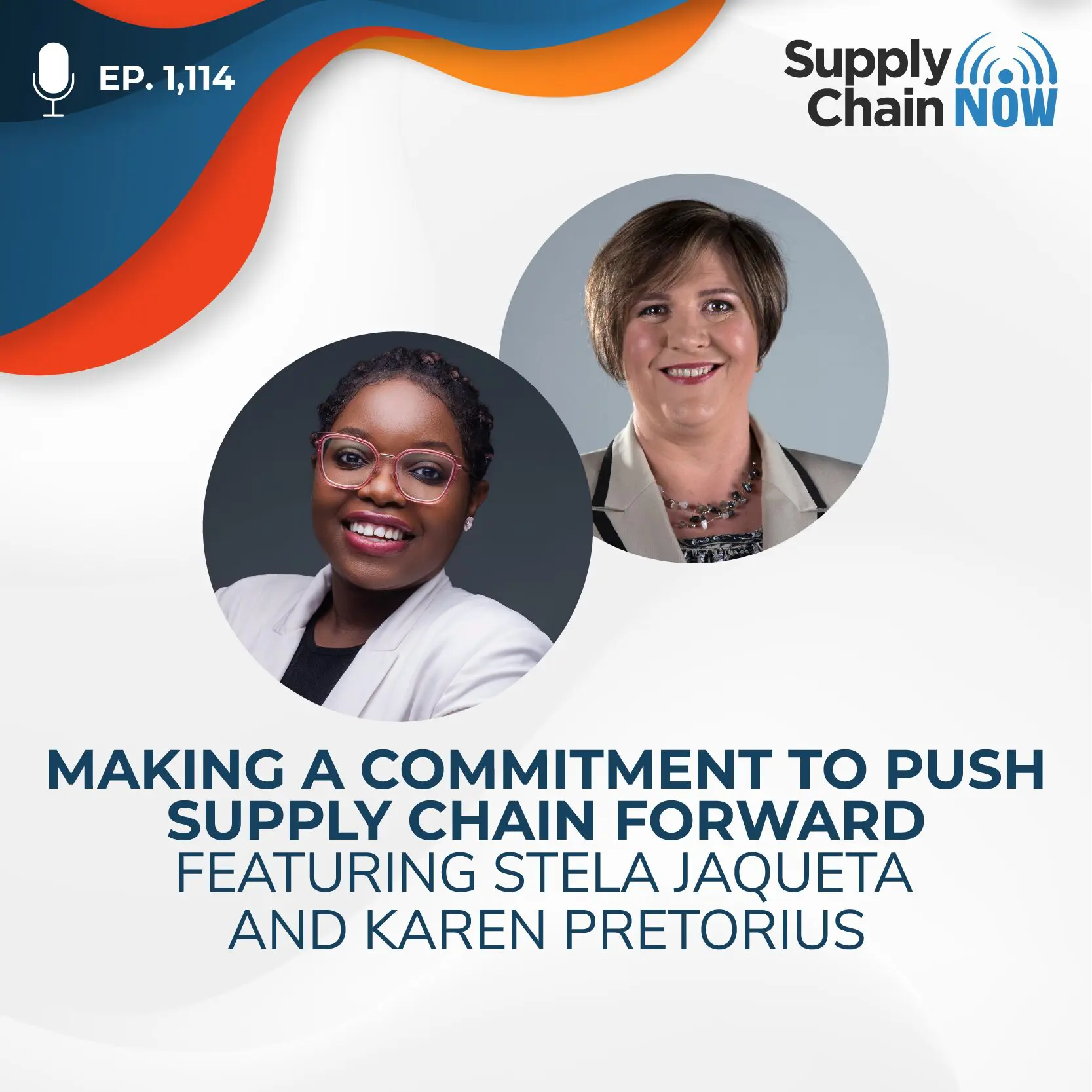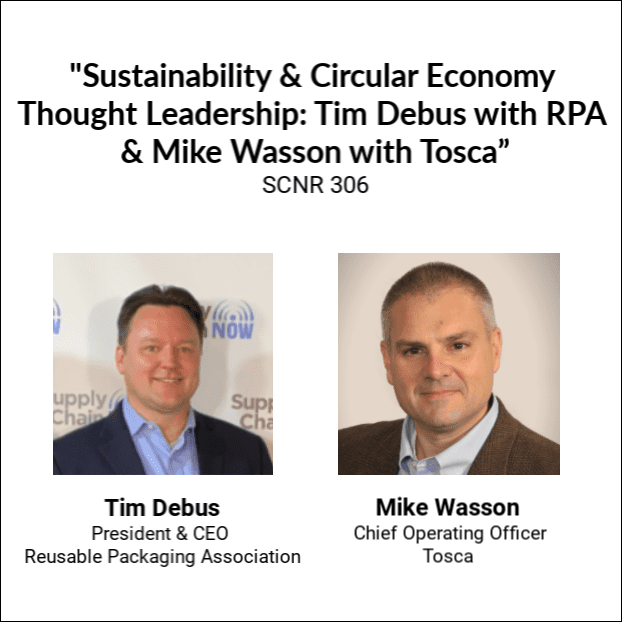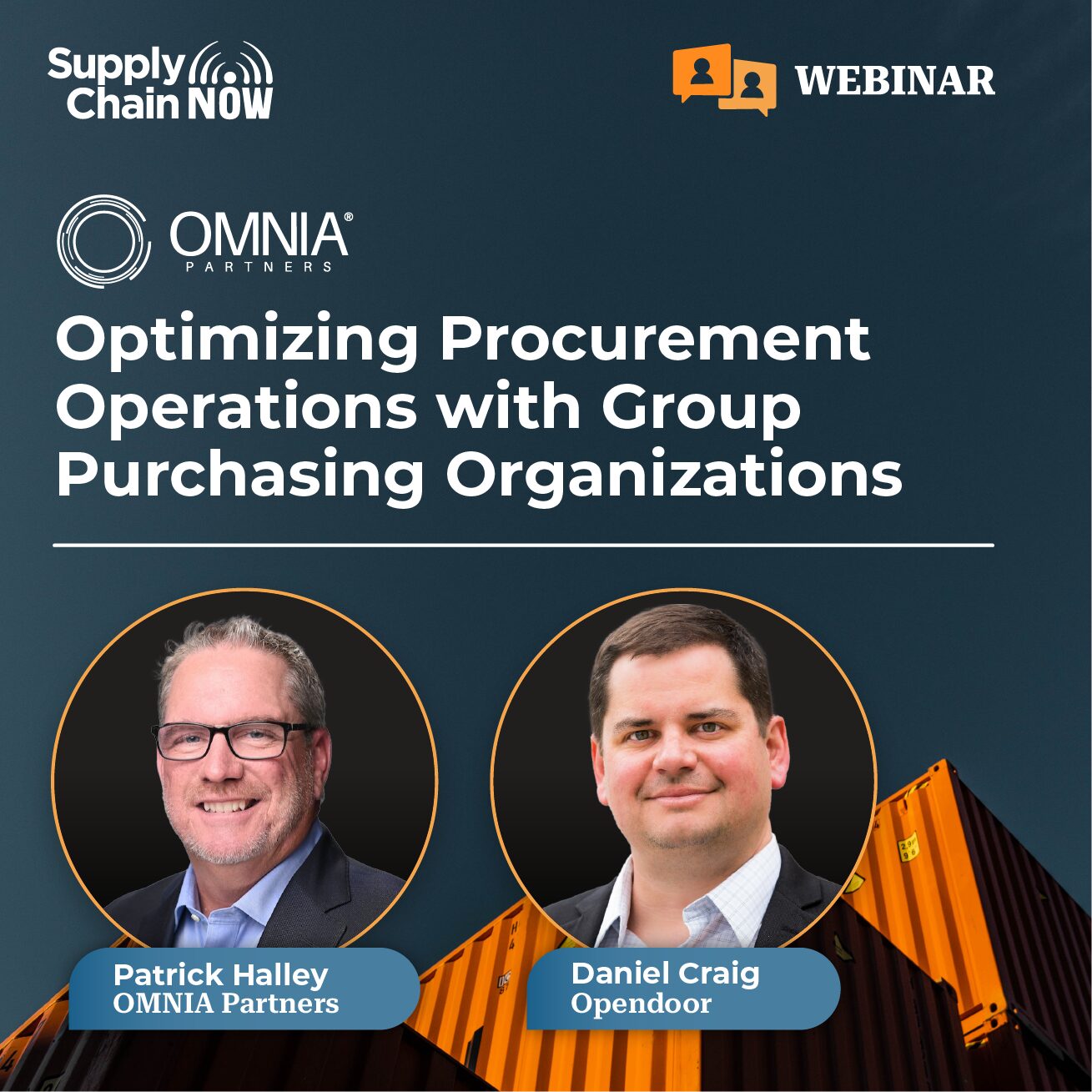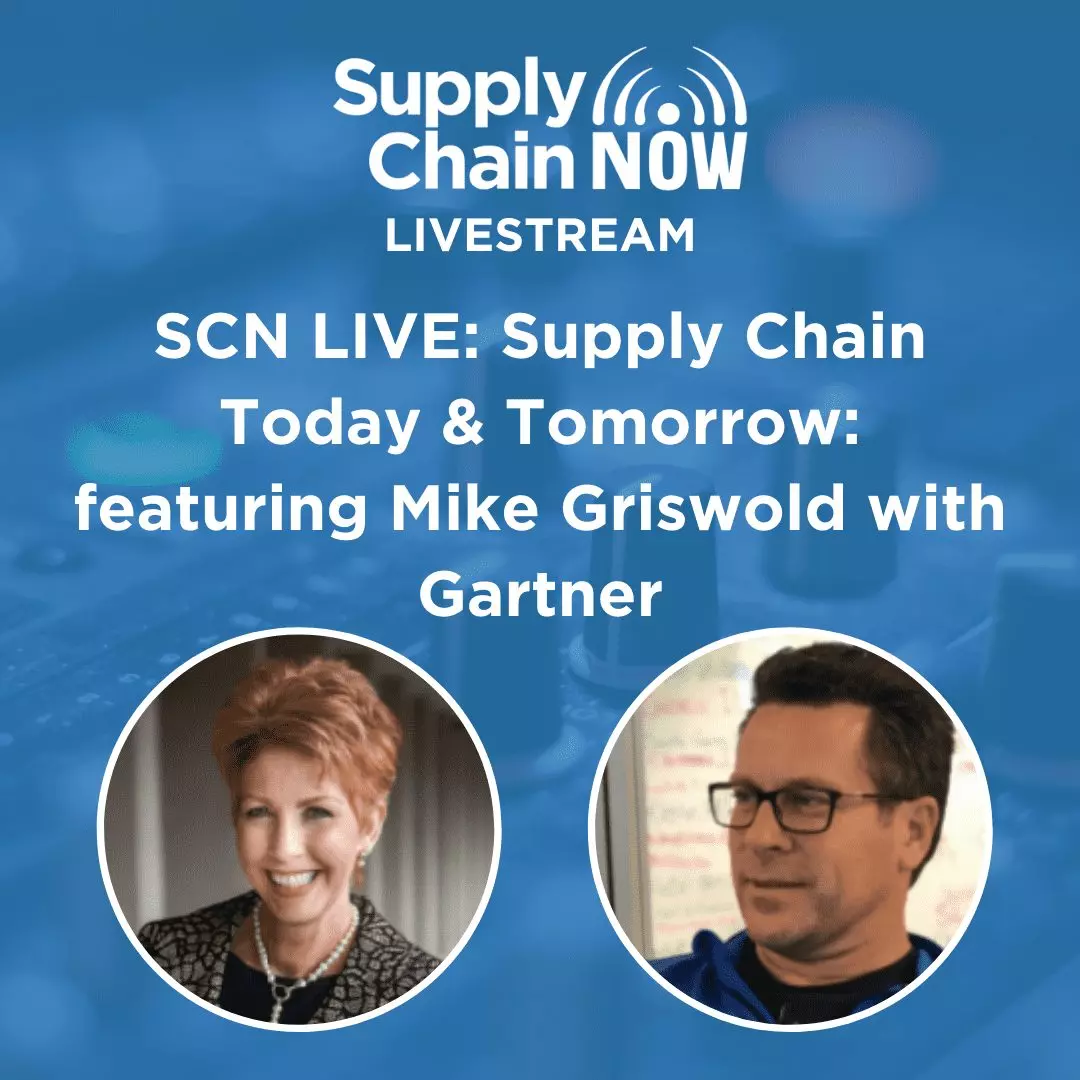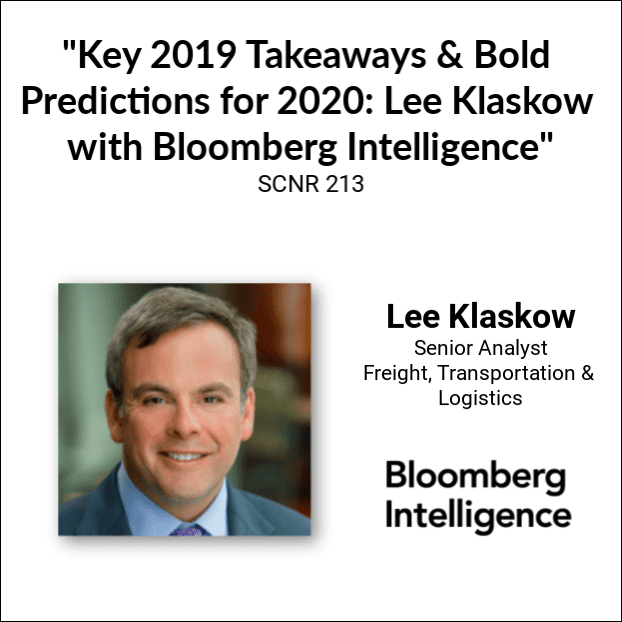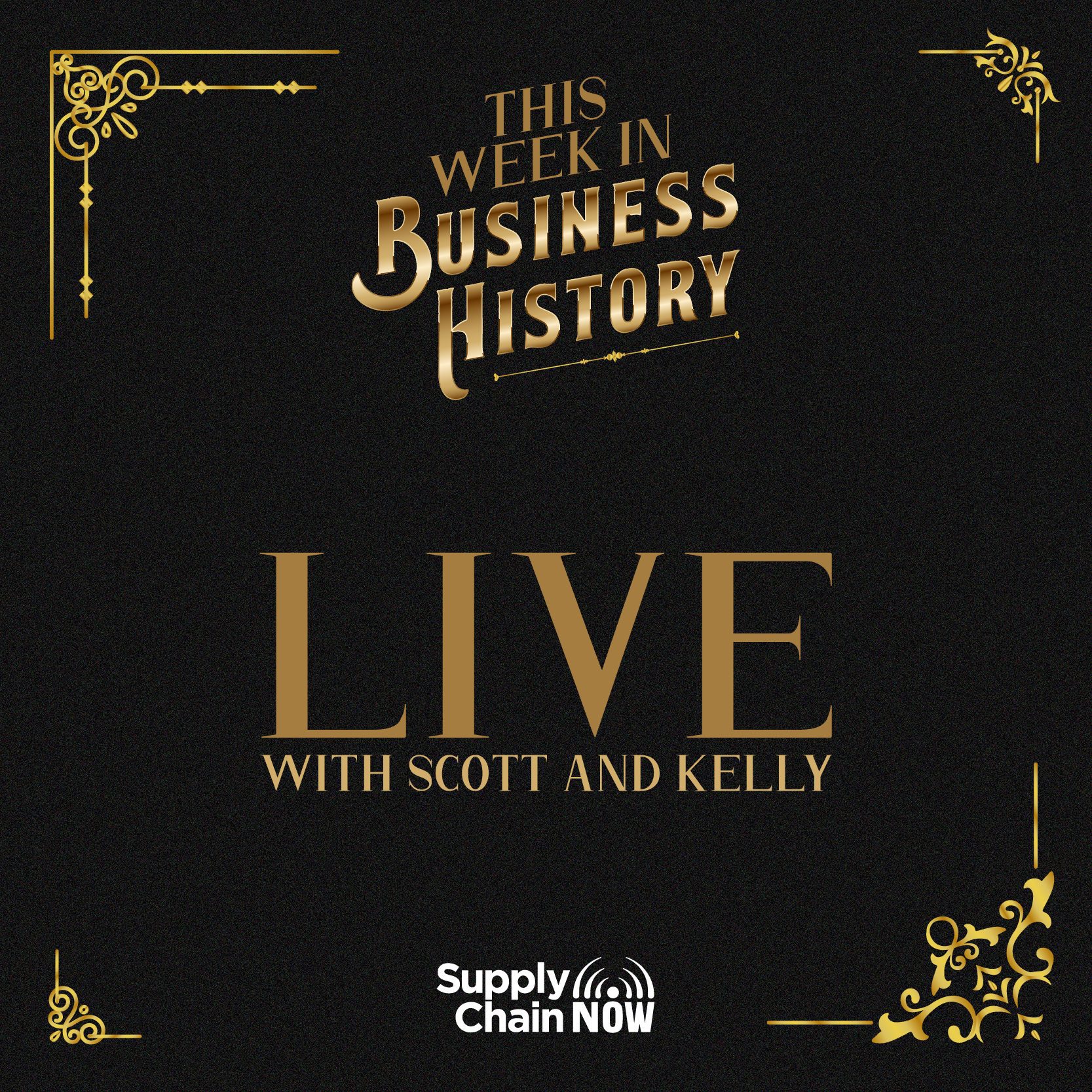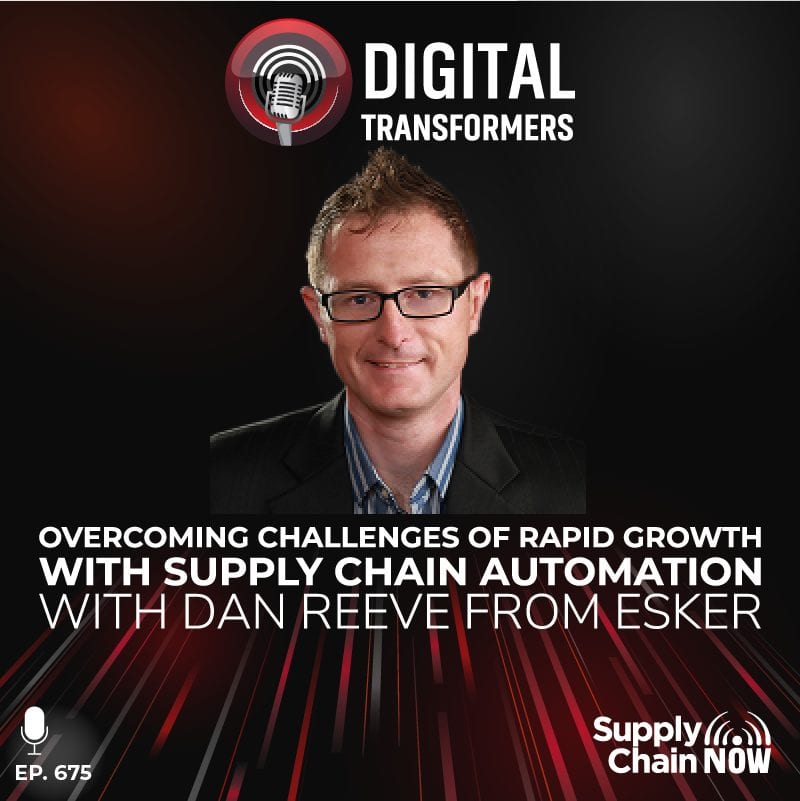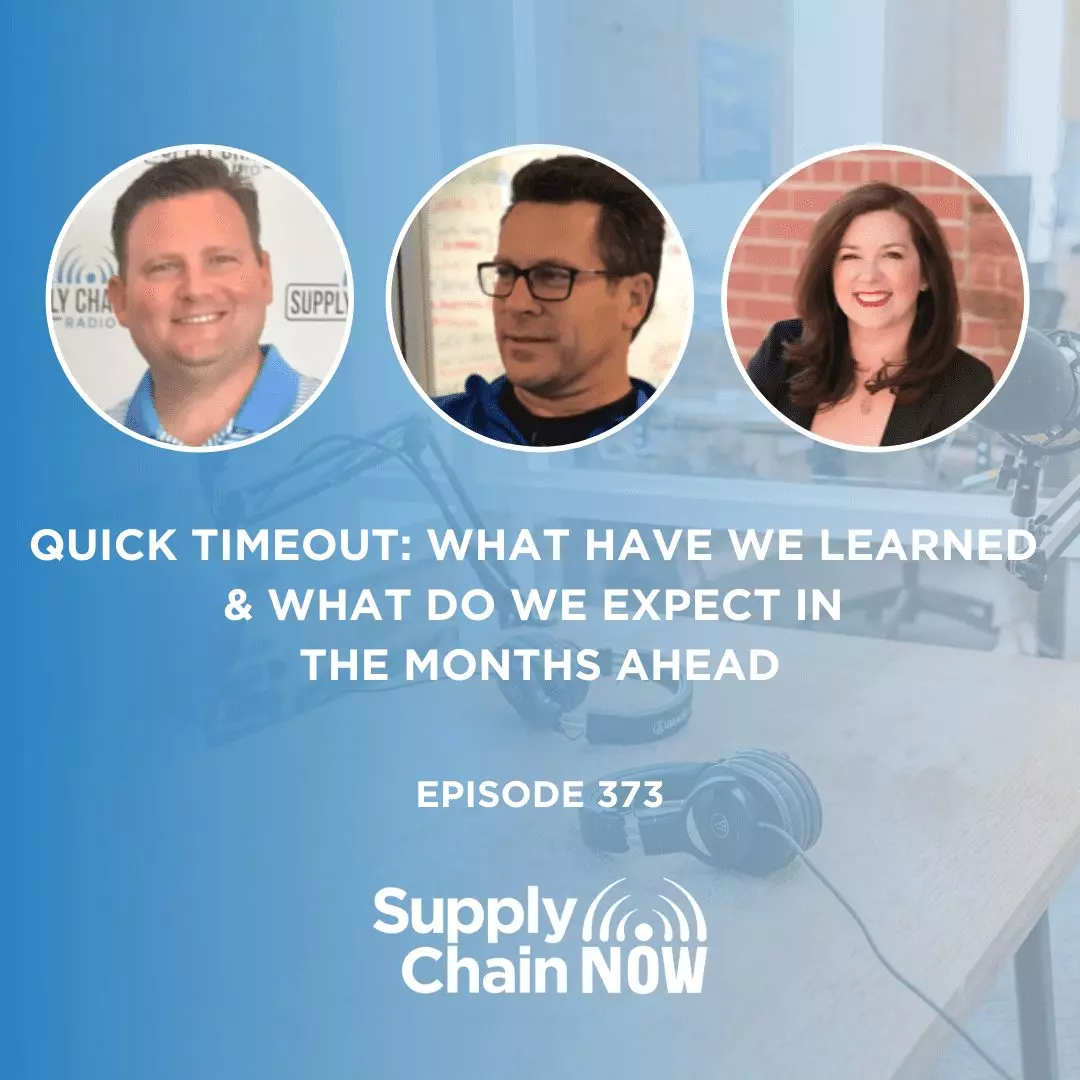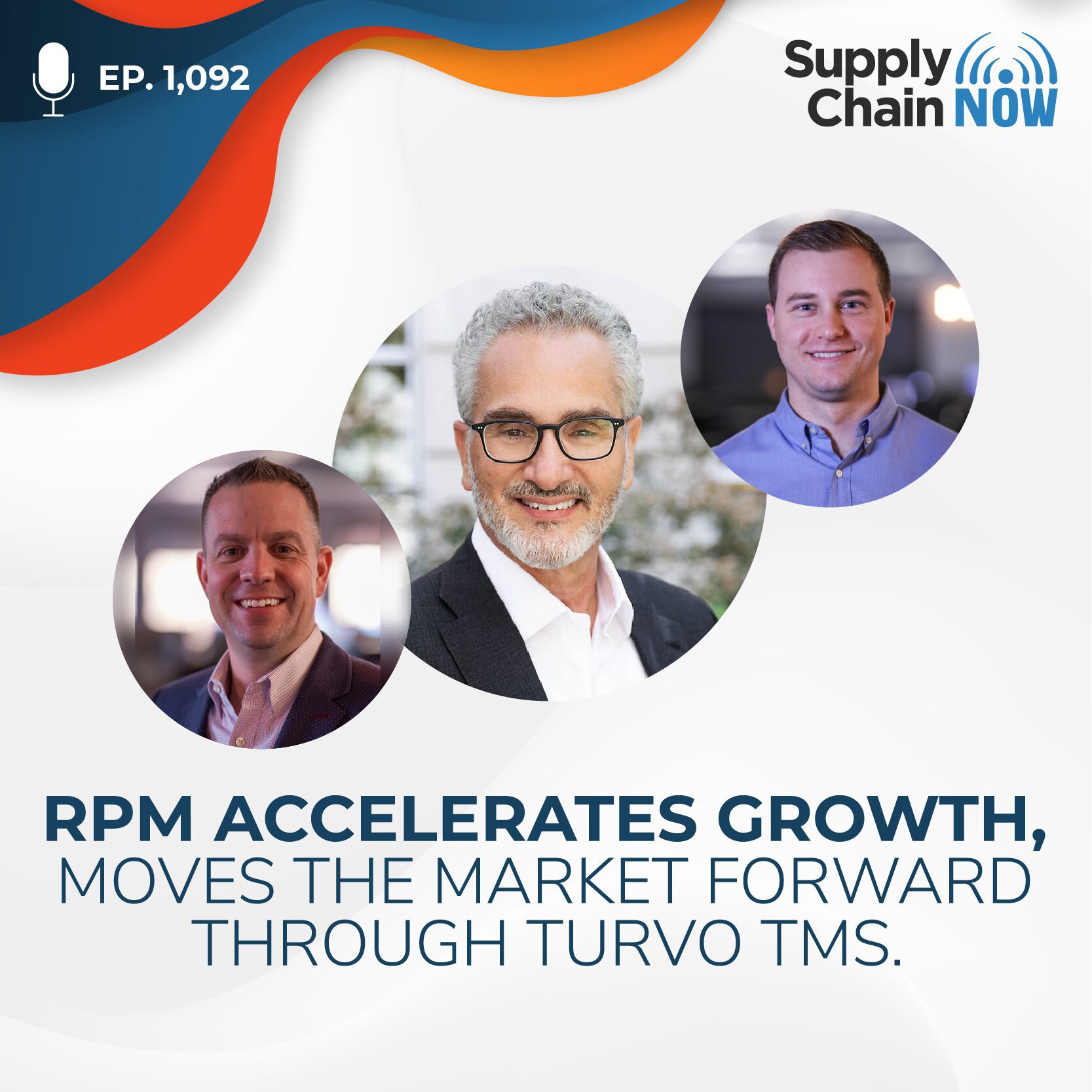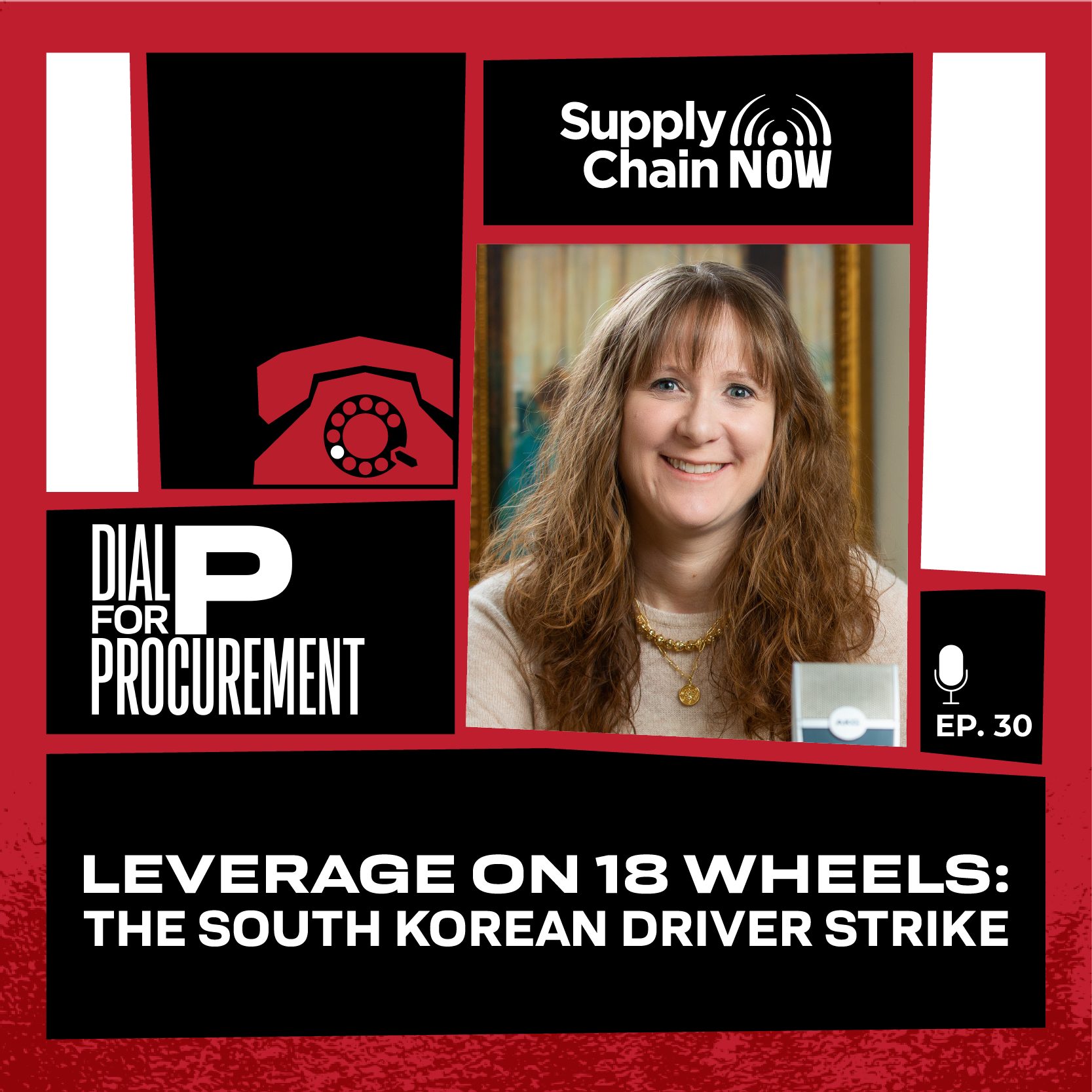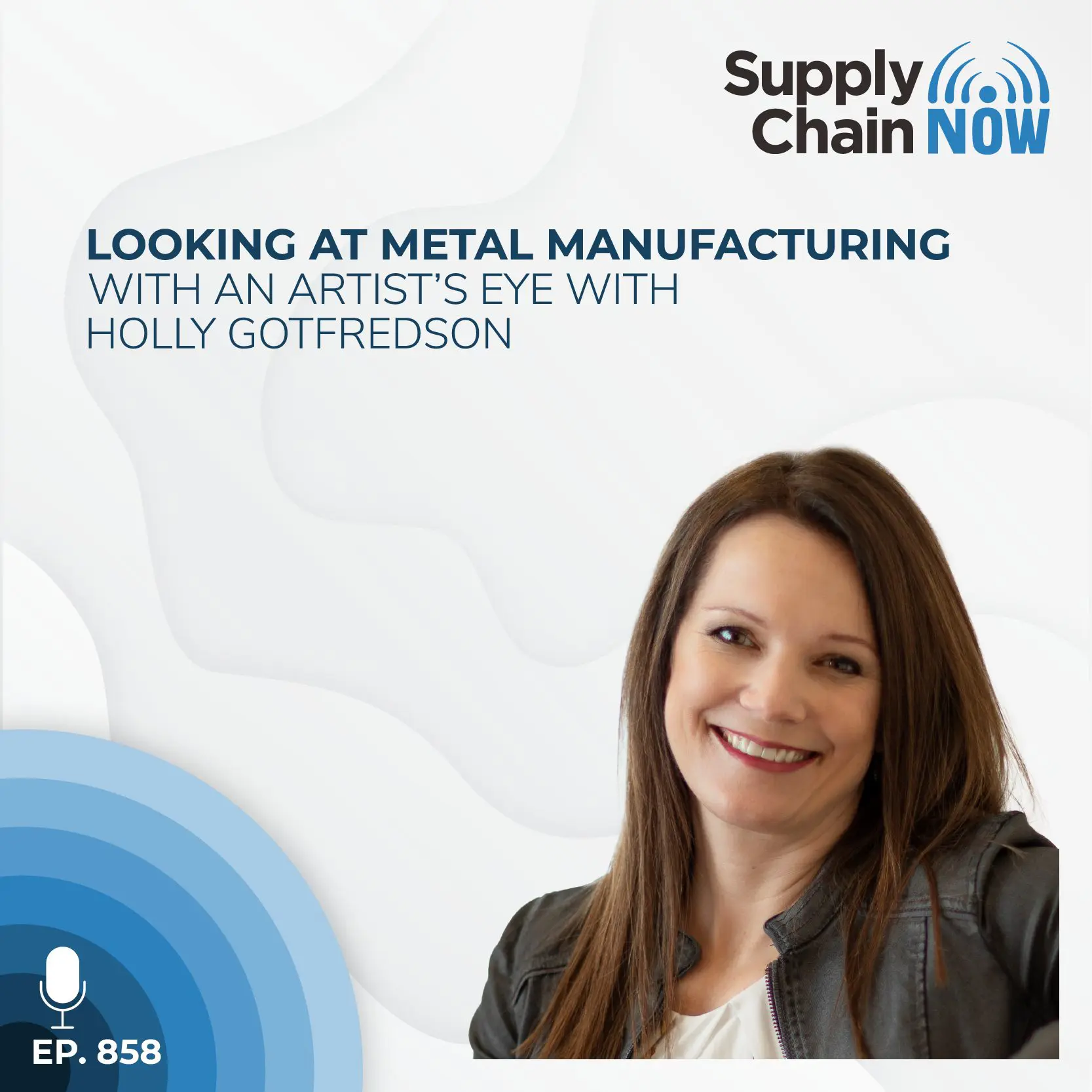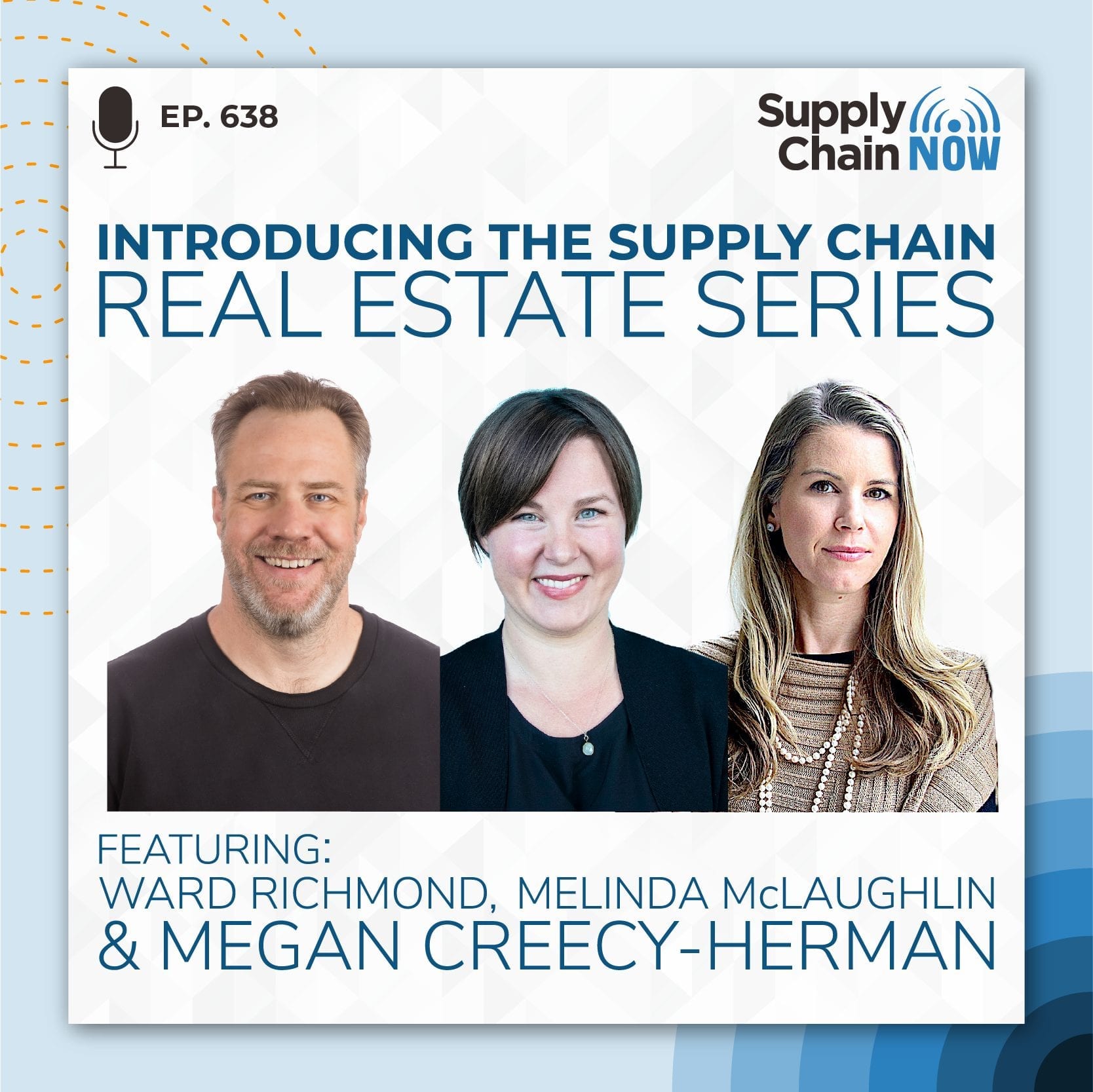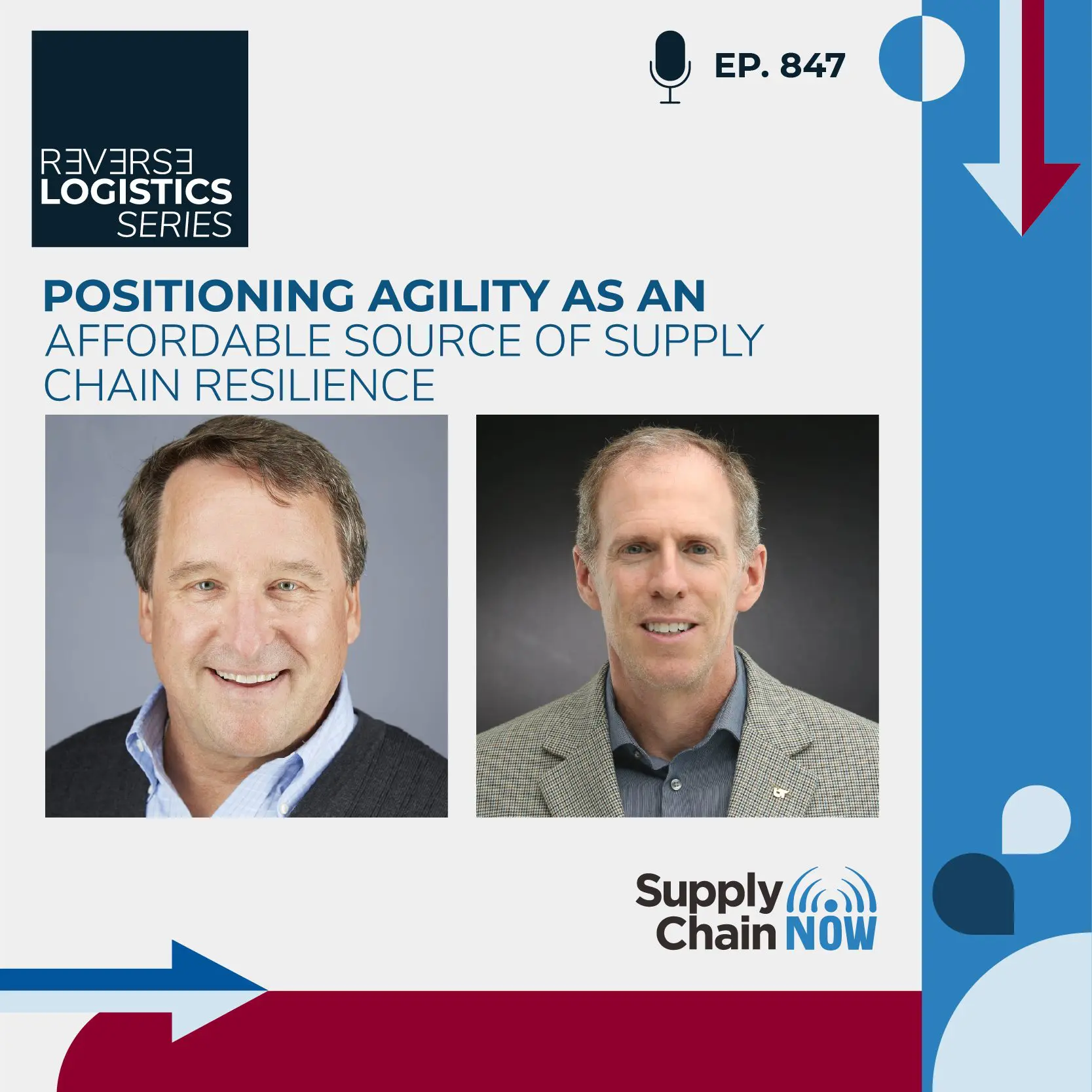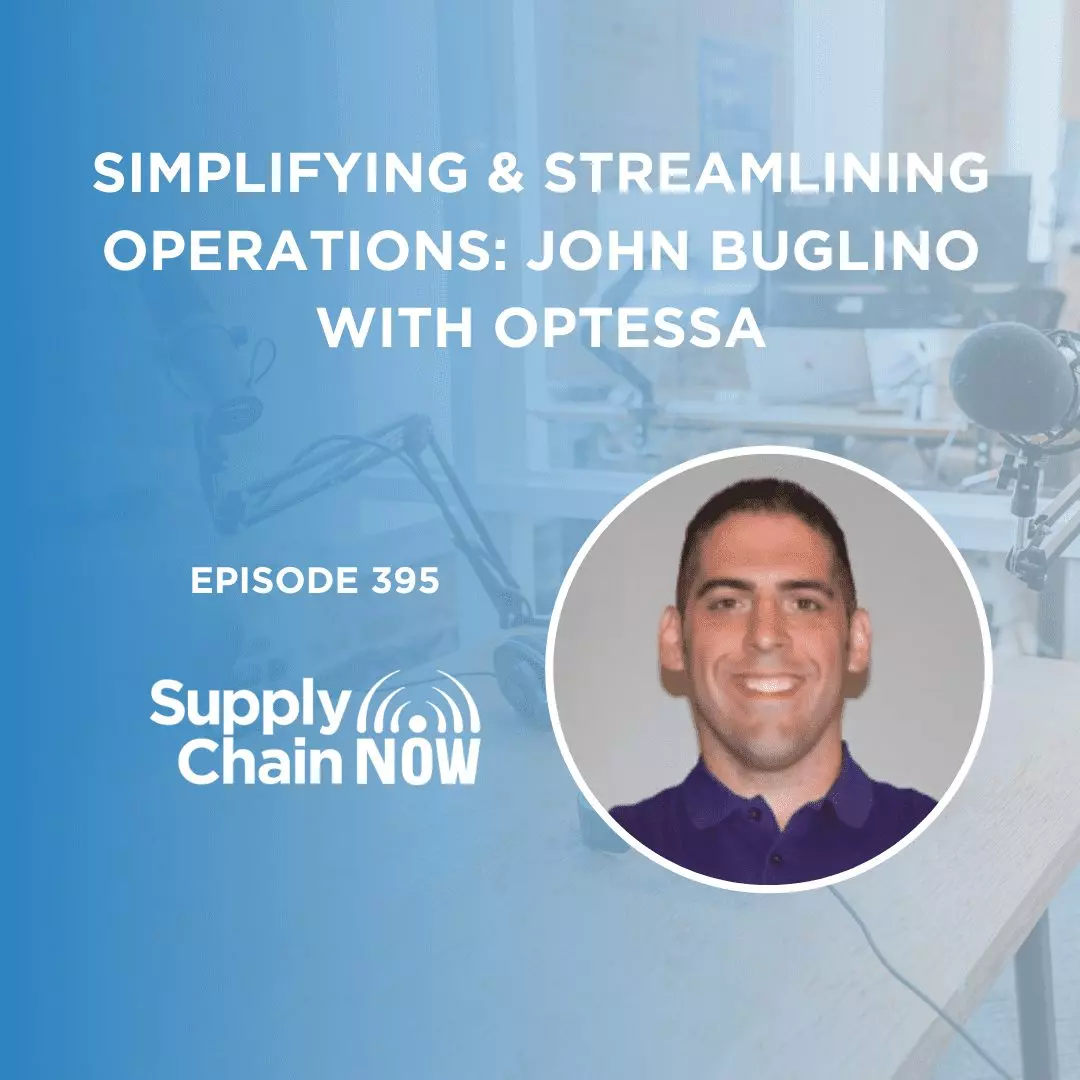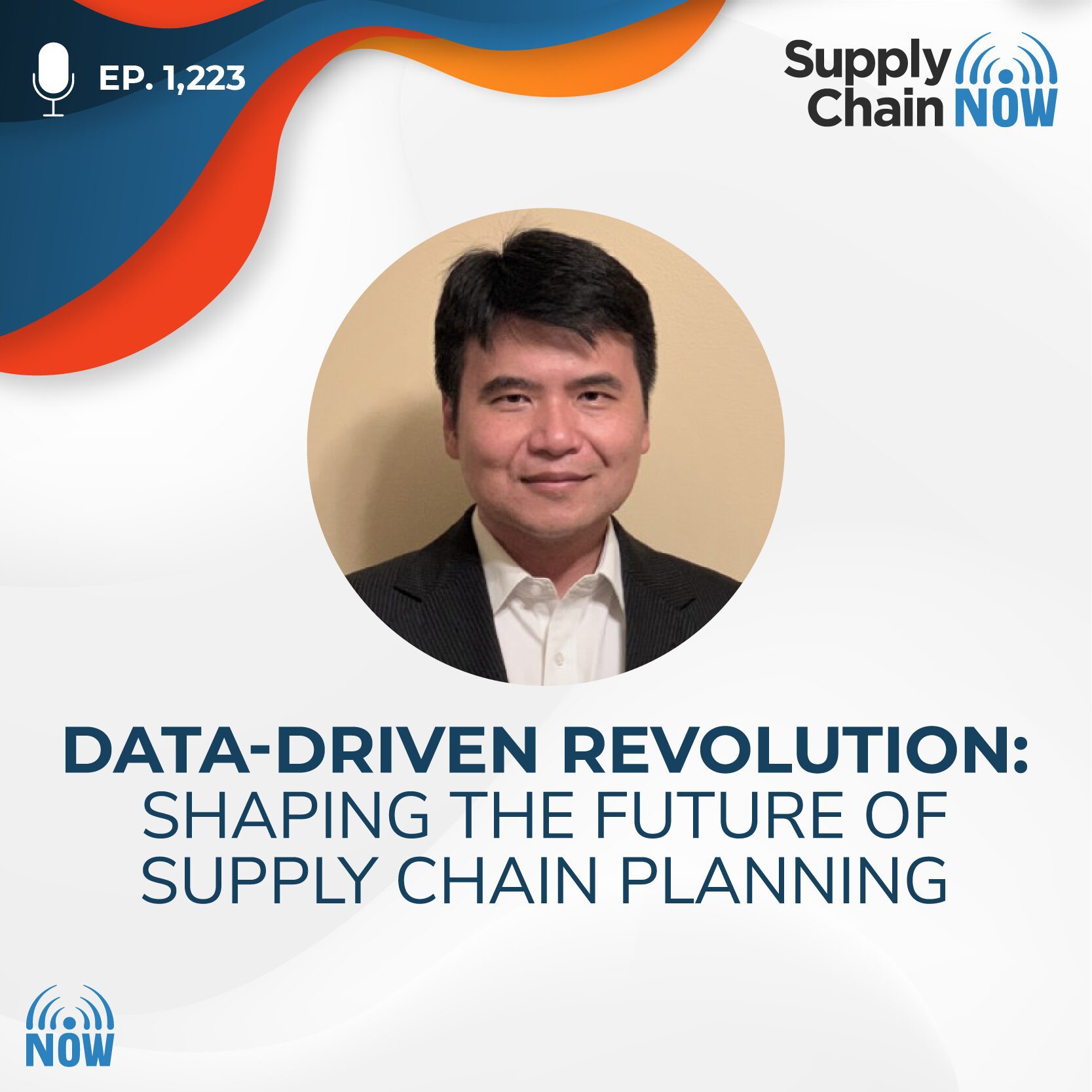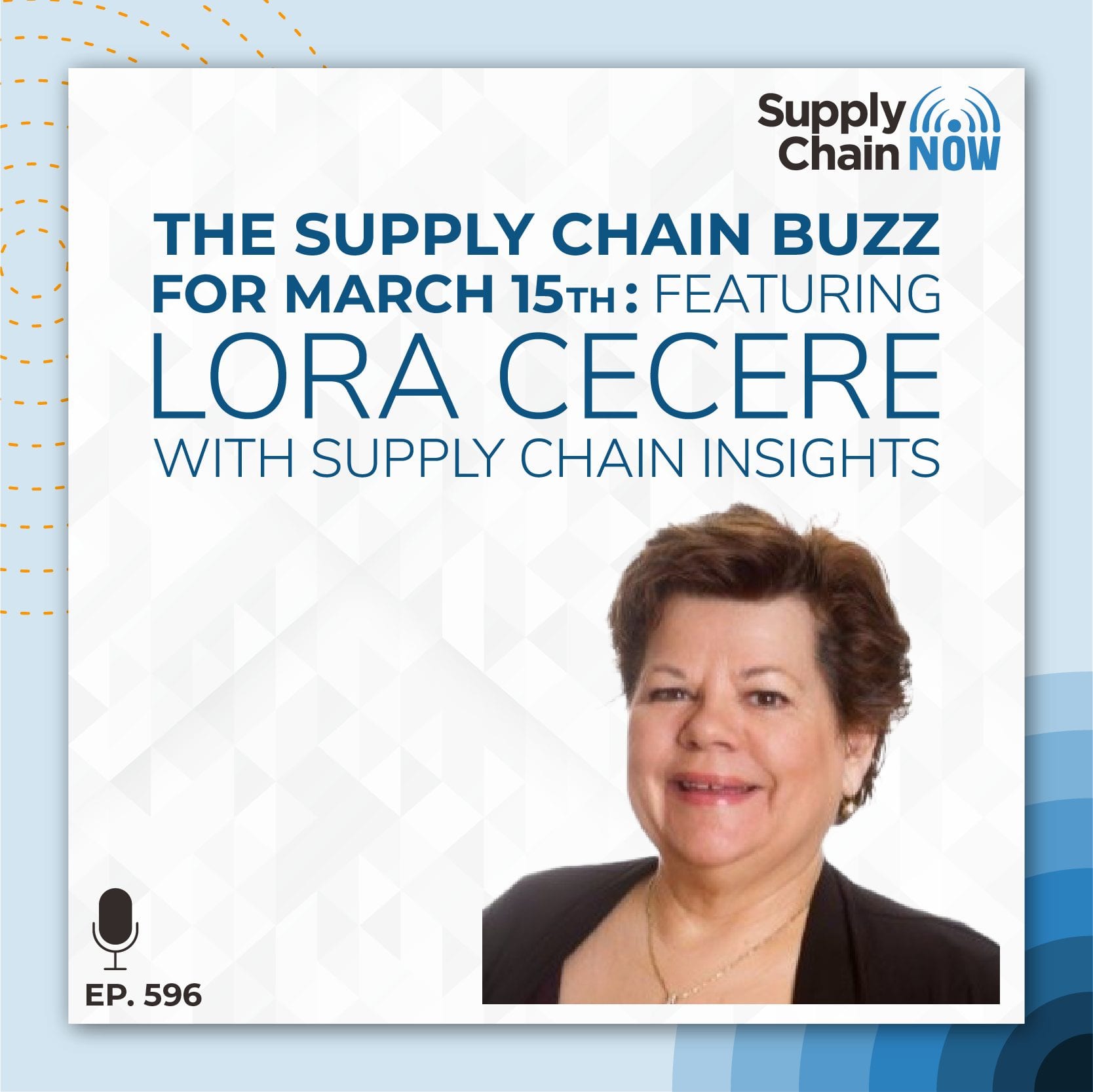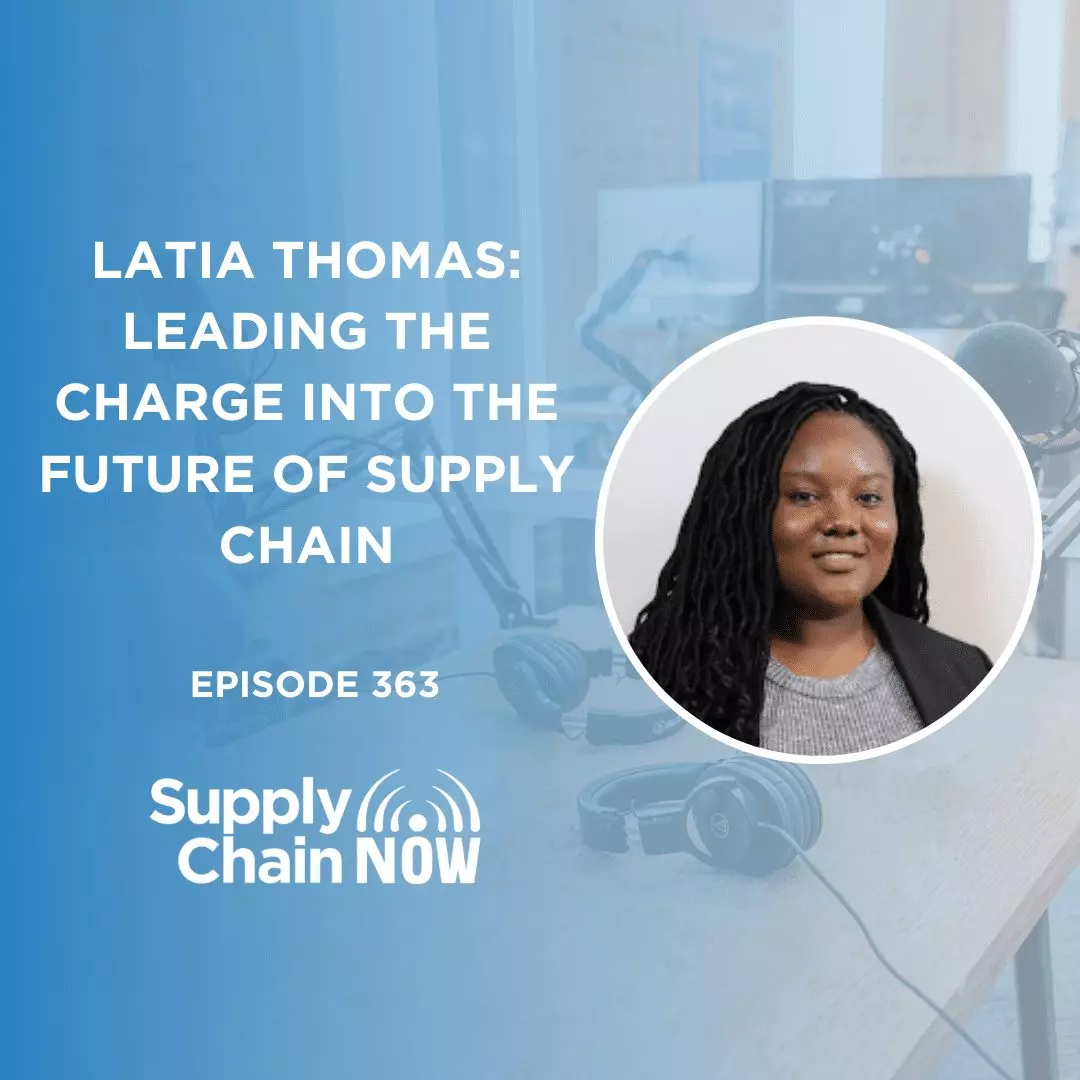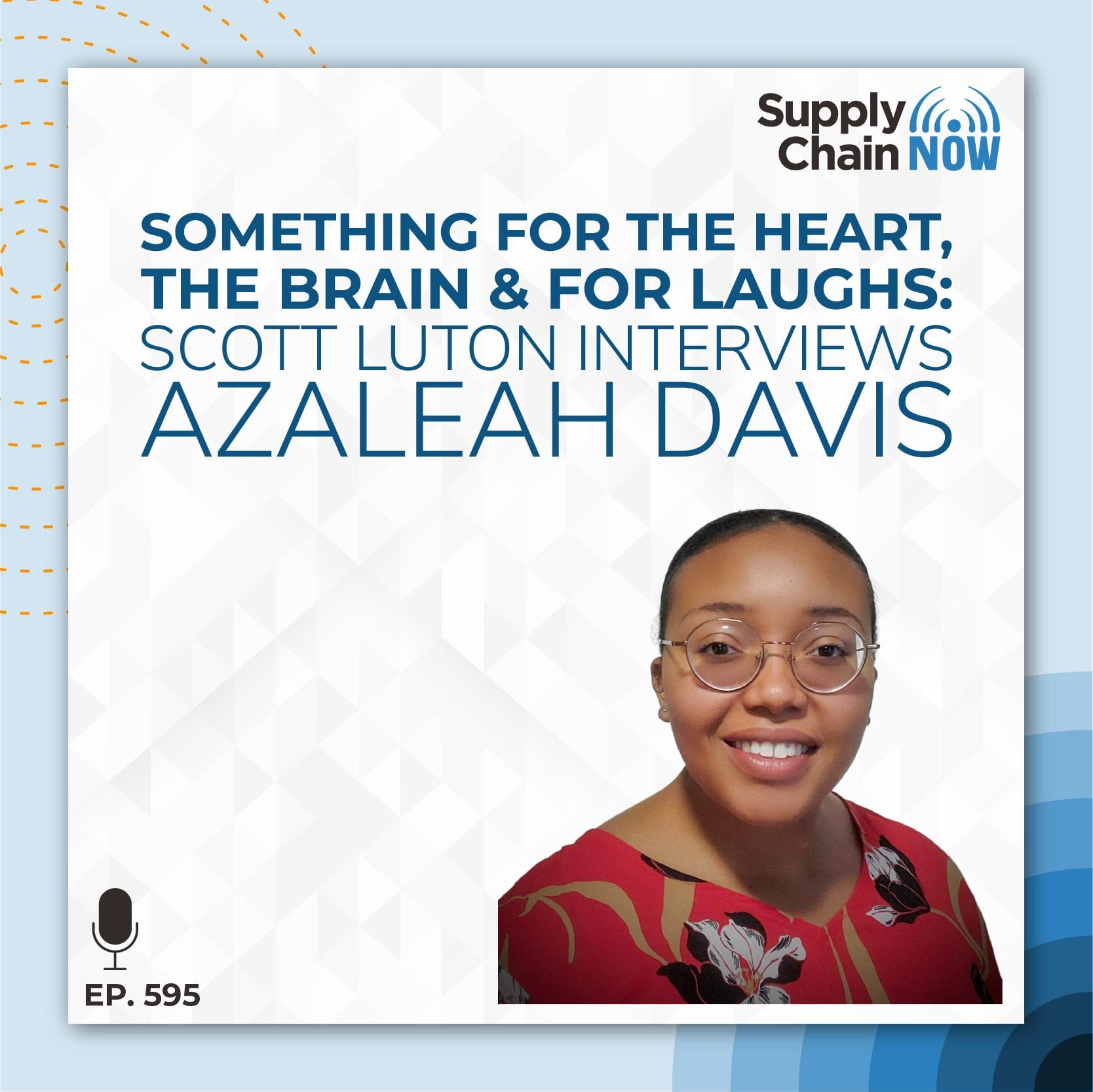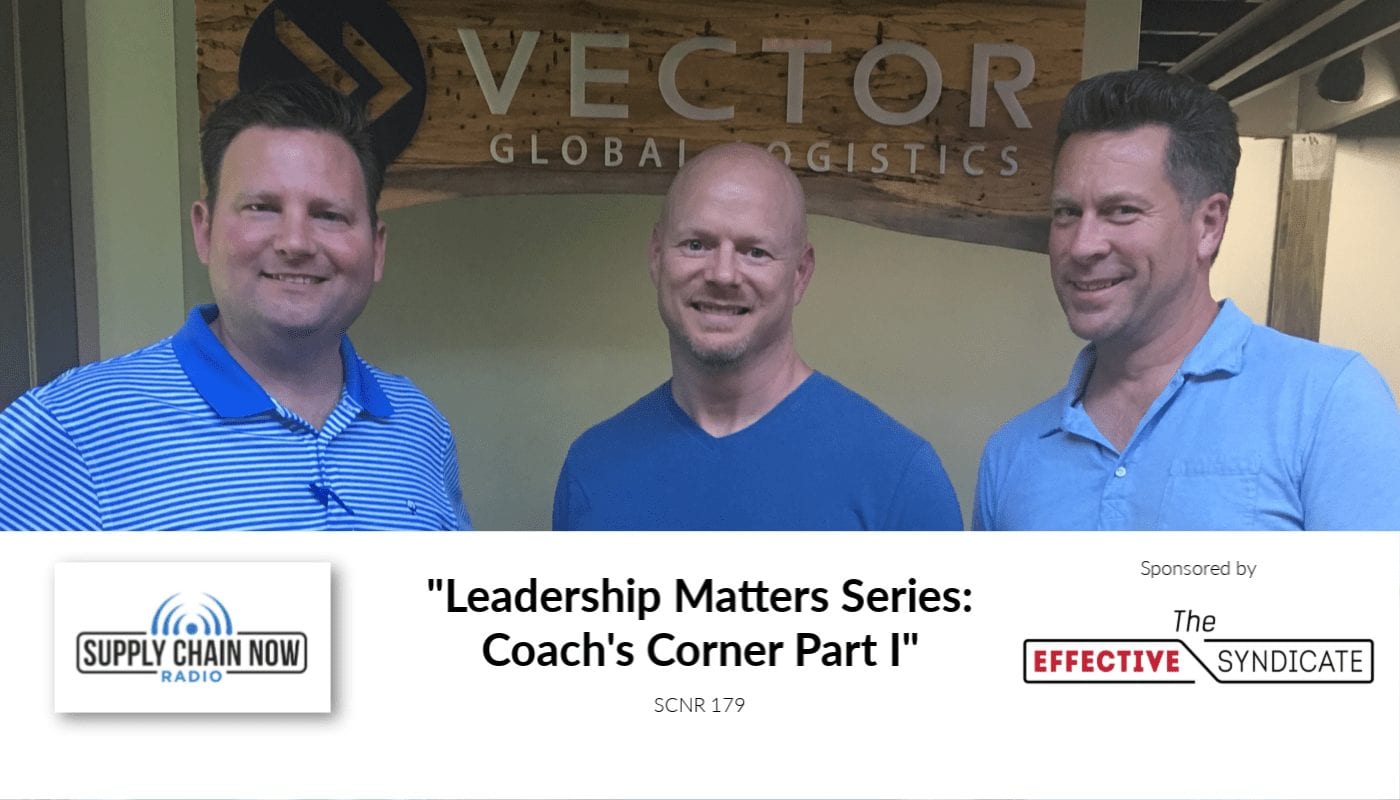
Episode Summary
In partnership with The Effective Syndicate, Scott and Greg welcomed Beau Groover for Part 1 of the Coach’s Corner in the Leadership Matters Series.
Episode Transcript
[00:00:05] It’s time for Supply Chain Now Radio. Broadcasting live from the Supply chain capital of the country, Atlanta, Georgia. Supply Chain Now Radio spotlights the best in all things supply chain the people, the technology’s the best practices and the critical issues of the day. And now here are your hosts.
[00:00:29] Hey, good afternoon. Scott Luton here with you, Live on Supply Chain Now Radio. Welcome back to the show. Today’s show is our latest installment in the hashtag Leadership Matters series, which is, of course, sponsored by our friends over at the Effective syndicate. But here’s the deal. We have a twist on the old routine. This is the coach’s corner edition of Leadership Matters. We asked for your questions in the last few days. And now our panel is going to stand and deliver. So stay tuned. Quick programming note. Like all of our series and Supply Chain Now Radio, you can find our replays on a variety of channels, Apple, podcasts, SoundCloud, YouTube, wherever you get your podcasts from, as always. We’d love to have you subscribe. So don’t miss anything. OK. So let’s welcome in our featured esteemed guests. Today we have Bo Groover, founder and president of the Effective syndicate Bo. How you doing? If I were any better, I’d be twins. No. And secondly, we have Greg White cohosts serial code here at Supply Chain Now Radio. Serial Supply chain tech entrepreneur and trusted advisor Greg Heda. I’m doing great. It’s been a big day. Shoegaze yeah show big production day, but great conversations from a remote podcast this morning talking about the latest and greatest in the Logistics Tech. And Our Friends E.M.T. To the show we just wrapped up with Tony Shroder and the reverse Logistics SCAC. Yeah too. Now we’re talking while things culture continues improvement. Leadership. Teamwork. Yeah, a lot of things here at the coach’s corner. So, Bill, I got to ask, what coach did you have in mind when you coined this corner as the coaches don’t know that one specific coach.
[00:02:12] Remember the webinar we did building a team? And it occurred to me as I was doing all of that coaching research is probably a lot of people who have questions, but maybe they don’t have the person in their network. So, you know, asking your spouse is probably hit or miss. It’s a little bit tough to ask people that you work with because you don’t know are they going to tell somebody or, you know, are they just trustworthy? Do they had this kind of information? So we figured a degree removed from the actual situation to say, look, in general, what are some of the questions that you’d like to ask a coach? And we get tremendous response. So I’m pretty excited about the first one. And hopefully this becomes a series depending on what kind of feedback and traction it gets agreed on with you. I had a coach. Amanda, did you ever coach a man? Not.
[00:02:59] Not, though I’ve had some had some good coaches, but I mean, probably the best life coach sports coach ever has to be John Wooden. Mm hmm. You know, I would I was introduced. I was introduced to John Wooden at a really young age. I was born on the very day that Texas Western. Now the UTEP field that the Firhill steppers. Right. Hill Topper. No, I don’t. I don’t know. I don’t know what they were when they were Texas Western. But but on the date that I was born. My mother lived to tell the story that she was he my father was late getting to the hospital because Texas Western was fielding the first all-black starting five in in the NCW finals against UCLA. My father was Big John Wooden fan, but also was a huge fan of seeing this historic event occur. And you know, so that that started my love for basketball. And of course, you know, the introduction to John Wooden and he almost.
[00:04:01] Mr. Arrival, he did did almost nice. Yes. The manners. My mother loves to remind him to manners. There you go.
[00:04:10] And so one last thing for Gates, our thanks question, because the first question will be about culture. And when I think of as a as a longtime Clemson fan, not we had a lot of good, great coaches, Danny Ford, a great coach, Tom, about and was a good man.
[00:04:26] Dabo Sweeney, Dabo Sweeney is an outstanding person, coach, leader, and he has done things at Clemson that that you would think as a fan would not be accomplishable, if that’s a word. And in it, he is from day one. He’s been about culture from day one before. All the stuff that he’s done, the wins. And really, you can relate this, Bo, because as a fan, I can feel it. And I bet as a player you can really feel it is you feel like, you know, to get into the game and win. Yeah. I mean, gosh, for decades as a Clemson fan, we’d go to the games. There was always that dread. Right. Right. Ask not not the case. A more so. That’s right. When I saw the you’d coined it this edition new series, Coach’s Corner. Of course, that’s that in pro Bobby Cox best Daryl story. OK, so let’s talk about let’s take our first question. And Greg, I think you’re going to share that with us, right?
[00:05:24] Yes, I am. So this is sort of an amalgamation of questions. Nice, nice word. You want to pick that word. So because we got so many on this topic. So I’m going to read this because it’s kind of long in a blended together. So it is a lot of supply chain leaders that I speak to are talking culture, especially a culture that attracts top talent and especially a culture that empowers the team to succeed. It unleashes a team to go out and win. So what South did? Did he just read this question? So that’s what goes into that kind of culture. And how do you go about creating it? So that’s what folks in the network generally are talking about. Sure. So you got to take it.
[00:06:06] I want to start it. You know, I think that’s a great question. And it’s probably one we could do the whole show on that question. Right. We’re not going to in the interest of time. But I think a lot goes into it. Right. So a lot of organizations, in my experience, don’t spend enough time assessing where they are. And also, my experience shows that the further removed from the day to day grind, if you will, the less aware the leaders are of the culture. So I’ll talk with a C-level executive and he’ll tell me about this. Can do spirit get it done, entrepreneurial team of people that are just setting the world on fire. And then I start talking to the people and they think, you know, they tell me, you know, we’re successful in spite of that guy. So there’s the first part in my mind is truly assessing where you are current state. And the second step would be determining where you want to go. And that’s not you know, that’s not an individual sitting in his office and pointing out a bunch of buzz words, but that’s sitting around with the team of people that work in that building and say, our guys and gals, what culture do we want to have here at this place? And let’s get really, really clear. Let’s let’s wrestle about it. Let’s fuss and cuss with each other and let’s hammer it out. Right. It can’t be a list of 74 buzz words. It’s got to be five to 10 core behaviors, core values that people will buy into. And then you go about implementing it. And, you know, I think we can talk a lot about implementing it. But from my perspective, that is the starting point of no one determining where you are. Number two, determine where you want to go.
[00:07:39] Mm hmm. You know, I think it’s that all of that’s true. And I think in addition to it, it it is about this empowerment word. But it’s a little bit different than saying you’re empowered. Right. First of all, I firmly believe I’m 100 percent convinced and we’ll never be convinced otherwise that culture in a company comes from the top. Usually one person at the top and usually that person is at the very top. And that culture is developed whether that culture is intentional or accidental. So you have to as a leader, you have to be very intentional about the. Culture that you create, otherwise you get the culture that you enable. And and that may be a reflection of some of your personal processes, your personal strengths and weaknesses, and you may not want your organization to have those weaknesses or biases or whatever those things are. So you have to be very, very intentional about what those things are. And I think the you know, the other thing to think about from it, he started the timer on me, which threw me another.
[00:08:46] I think the other thing the other thing that you that you have to think about from a from a culture standpoint is that empowering people is about uncovering their greatness. I think, you know, one of the terms that coaches use a lot is getting the best out of my team or getting the best out of my players or whatever. But when you take that literally, it’s it can be easily misinterpreted. It’s not getting the best. It is uncovering their gifts and enabling those gifts to help them grow and help the team perform. And, you know, again, that’s something I learned from John Wooden, is he was about personal responsibility, about understanding your role and understanding your personal gifts and then using those. So another great coach can’t believe I’m going to say this because I hate the Pittsburgh Steelers. We just lost all the podcast charts in the state of Pennsylvania. Gregg, go, chiefs. Chuck know what his philosophy was to get great athletes and build his offense around, build his offense, particularly around those great athletes. And that’s almost always a successful culture. Sure. Right. So so not only do you define the culture, but you somewhat adapt the culture to the people that you have as well. Again, being intentional, but it has to be flexible as well. All right. Or go get the people that you need. Right.
[00:10:16] So, yeah, you try to build around what you have. But at the end of the day, if I need a quarterback and I don’t have one, I’m not going to try to take a defensive lineman and say I need a quarterback. So you’re it. Right. So we’re we’re back to the ducks.
[00:10:26] Yeah. I think we talk about empowerment. One of the easiest things to understand about empowerment, least to me is is allowing folks to make decisions and take gambles. I think we’ve all worked in organizations. I certainly have where the culture has been very empowering. They push decisions down. You know, they they encourage folks to try new things. And of course, if you fail, you’ve got to if you’re not failing, you’re standing still. Yeah, you’re standing still. Right. And you know, you want to fail and fail fast. But you’ve got it. You’ve got experiment. You’ve got it. And you’ve got to. I believe the type of culture that that pulls people to you, it is a type of cold culture where the leaders are constantly letting others make decisions. I think winning cultures and cultures that attracts people are cultures that don’t aren’t have don’t have a punitive structure. Right. They’re not concerned looking for ways to daqui that here or punish it. Here, take this back or take that back. But rather, they provide lots of incentives for going above and beyond. I think of, you know, heck, we’re doing this right here. Vector Global Logistics. Right. And the third point when I think of cultures that pull people to them is, is those cultures, those organizations that give back. And this is an outstanding testimony to a culture that’s dedicated to giving back.
[00:11:46] Now, one last thing that’s kind of related to each of these in some ways is a culture that allows people wherever, whatever position are in wherever they rank, so to speak, or whether, you know, whether you’re a CEO, whether you’re an analyst or whether you’re a part manager or whatever, you know, a culture that allows all these folks to understand the mission and where they play in the big picture.
[00:12:07] I think that is so important. And, you know, I’ve been a part of organizations where they don’t they don’t want to give you this much information. I need to know basis. Yes. And that is not a culture that is built to win. In my book.
[00:12:20] Well, and, you know, to further that point. People want to be valuable to an organization, to the purpose. Whatever, you know, whatever is driving a particular company. But they also want to be valued. If you can accomplish those two things, helping people feel valuable and be valuable and feel valued. You’re halfway there. That’s a huge part of culture, right? I mean, the biggest reason that people leave jobs is not because of pay. It’s because they either didn’t or both didn’t feel valued or feel valuable. Right. Right.
[00:12:53] And the other part, you know, you talk about the empowerment thing. Right.
[00:12:56] So as a human being, I can’t I can’t empower another human being. Right.
[00:13:02] I can’t I don’t have any conveyance or control over another human being. What I can do as a leader is create an environment or empowerment. And I can engage people in and challenge them and encourage them to walk through. But at some point, and here’s the power of this culture, I think it allows you to drive harder. So a lot of the executives say, well, you know, you if you care that much about your people, can you really push? And I would argue if the more you care, the harder you can push. Because now I’ve got an agreement. I’ve created an environment. Greg, if you worked here. Right. I need you to do these things. I need you to take these risks. I need you to be willing to, you know, try something new. And after the third or fourth time, I say that and I don’t see activity on your side. Now, the conversation is going to be a little bit different. Greg, here’s the culture that we want to build here. Are you sure you want to be a part of it? So it becomes this agreement that says, look, you know, I here’s the expectations of working here. We want a dynamic workplace. We want to have empowered people. We want to be willing to take risks and try new things. And it’s not punitive. What are we gonna do? How are we gonna do it? You know, let’s let’s go get after it. But at the end of the day, the expectation falls to the people who work there to say, all right. I know the culture I’m in because it’s been explained me 79 times. I understand it. It’s on me now.
[00:14:20] I think you I think you also find that if if you truly allow people to be empowered or create an environment of empowered, you don’t have to push as much. Oh, yeah, right. So lutely you will get more out of people. I mean, I just recently exited a company where there were just a handful of us at the start. And, you know, we were very intentional, intentional about identifying our core values and identifying our culture and living our culture. It was easy to do because we were in a room not much bigger than you can see on camera here. But. And by the way, that was really productive environment to be that close to one another at that stage of the company. But in addition to that, we all knew what our.
[00:15:06] Higher purpose was right.
[00:15:08] The purpose of the company and and, you know, we had the ability to say, hey, we need to accomplish this, not do this. We need to accomplish this goal, you know, and everyone knows the boundaries. So we need to accomplish this goal. And because we need to accomplish this goal.
[00:15:28] You know, Peter or or Mike or whoever. Go out and do it. And, you know, and make it happen. And they knew where they stood. They knew what they were able to do. And they felt the power to actually accomplish it in their way. Right. Right. And that honestly, that was a that was a growth point for me. I’ve not always been that kind of manager. So I’ve experienced that firsthand and very recently and to success as well.
[00:15:56] So let’s as you said, that first question was. And you call it an amalgamation. Thank you very much.
[00:16:05] So some of the folks that that some of the folks that that went into that question, I think that I thought about, you know, Mike, was that Tosca, Brian Greene, HMTX Industries, Christian Forecki convoy boy, they came here, certainly Enrique Alvarez here, Vector, Vivian Greentree Foster thing about giving back and and mission and duty in the big picture. I mean, these are really cultures that as you sit here and talk with leaders that describe it, you can almost see it in their eyes. And you want to follow it through a brick wall. And that’s what I mean, when I when they tried to make this thing about culture, which, of course, this is is cliche. Everyone likes talking about culture. But making it real tangible is when the leaders of these organizations, of these right cultures come and speak to the room and that room is Ryder to follow him into battle. All right. Yeah. OK. Well, I think that’s the cowboy principle, right? If you want to know if you’re a good leader, turn around or watch wild.
[00:17:02] See if the herd following it is true.
[00:17:06] I mean, you’re not a leader. Right. Because you have whatever exceptional gifts or because you commanded you are a leader because people follow you. And that’s when that’s the only validation that you get. That’s right.
[00:17:17] And it’s a gift, right? If people are willing to follow you, then recognize that you’ve been given a gift and cherish it. Yeah. So next next question. That was that was a great warm up question. I think you’re a great amalgamation of the topic. Yes, maybe. So the second question, big shout out to Allison Giddens, and I hope I’m pronouncing that name correctly. And she asked, are there certain common qualities you’ve noticed the best candidates have when someone is new to the industry and looking to get a job in the supply chain areas, Logistics, manufacturing, etc. And so I read that. I think she’s asking if certain common qualities you’ve noticed for the best candidates have when someone is new to getting into the supply chain industry or the supply chain area of of a job.
[00:18:04] So what are those Istar qualities? Are you kind of consider how you want to know what you want, share up? I believe we talked about this.
[00:18:13] Seems like every show here lately in the military, there is a sense there is an esprit de corps. There is a sense of mission. There is a.. I’ve got your back. There’s a kindred spirit. That is for me. It is very difficult to replicate that on the private sector side. However, when I think about my time in manufacturing, there is a lot of those elements, you know, get good parts out own time and working across functional areas, folks that are strong bias for action, that get a sense of purpose and want to work with others, that some of that some of the qualities that that strike me when I saw this question, you know, in the Supply chain arena and Logistics in manufacturing is so much different than so many other professional services, you know? Yeah, I can’t remember the numbers. Maybe Malcolm can hook us up. But if you look at the the lead time associated with some of the professional services services. Right. And how much time they can they can do to get to this and get to that versus stamp and. You know. I mean, it can’t be night and day. So when I when I read this questionis, it’s like the best the better candidates are folks with a strong bias for action that is not about lip service, but it’s about jumping in and working with whomever is on the team to get it out the door or to make it happen.
[00:19:36] I think. I think for Supply chain, a lot of like you described, a lot of the qualities that are in any good candidate apply here, but I think particular to Supply chain so we can help. Hopefully I’m helping Alison out a little bit is I think you have to be able to plan for the best plan very strongly considering alternative and possible scenarios and then respond rapidly, ineffectively when those you know, when those plan scenarios never occur. Right. Right. I mean, the first you know, the first thing you learn about project management is the the second thing you do after you create a project plan, you revise it. Right, because it never nothing ever goes to plan. And I think that’s, by the way, why so many military vets are great candidates for Supply chain. They make life and death decisions instantaneously right in with with inadequate information while regularly improvise. And that and that is that’s you know, that’s the nature. That’s the nature of business in a lot of ways. But particular to supply chain. Planning not for the best case scenario, but planning for the expected case scenario is so important because that gives you financial boundaries to be able to operate under and financial expectations which are critical for managing any business.
[00:20:59] But then then being able to attack, if you will, when you know, when you get flat outflanked. So I think that’s you know, that’s probably the most important quality, flexibility, adaptability.
[00:21:15] Whatever you want to call it, it’s it’s the ability to do undertake those actions.
[00:21:20] Yeah. And I think, you know, the people who I’ve seen thrive are the people who don’t expect a routine. So if you if you’re coming into the Supply chain world and you think today’s going to look like yesterday, that’s going to look like the day before. This is probably not you’re gonna be your gig because the reason we call it a chain or all of the individual links that go into it, there is the warehouse and the logistics and the freight and the warehouse and the packaging and the labeling and the customs and the customers and the. Words never do what we want them to know. Darn customers, you know. So it’s that ability to adapt and improvise and overcome.
[00:21:56] But the people who like that love the supply chain. Because I guarantee you something’s going to happen.
[00:22:03] It’s action packed. It’s action packed. It made you all the job description should start out action packed. Yeah.
[00:22:10] Be like a movie movie photo. Then also folks that lean in and are willing to be a problem solver, which takes it takes independent action and it takes folks that are willing to fill critical thinking. Right. Will figure things out on their own and not take it step by step directions because we don’t have that in Supply chain. Right.
[00:22:33] And I do in many way and some in some places. But even that doesn’t solve the problem. Good point. Good point.
[00:22:41] Well, and I think that the other thing that we we’ve learned about or that we need to it’s a general coaching thing is don’t take it personally. Yeah, it’s work. And if something goes off the rails, it’s not because Joe’s a jerk. It’s because something broke down in the process. So that problem solving is, look, I can sit here, get my feelings hurt and spend a few hours complaining to my colleague about it and, you know, do something else to get my mind off of it. Or I can say, look, I got to acknowledge this and move on. It’s kind of a surfer’s mentality and say it is what it is. I’ve got to move into problem solving. Right. It’s time for that bias, for action. I don’t have time to sit around with my feelings hurt.
[00:23:22] I can if I need to. I can sit at home later and feel sorry for myself or whatever or admiring the problem, which I know you’ve talked about. Right. Complementing the problem. They explain real quick what we’re talking about, what you talk about when you say that. Yeah. So one of my coaches who was my lean teacher long, long time ago, I was convinced we had uncovered the world’s most complicated problem and we had it all lined up on the wall and we were all talking about it. John walks up, says, what do you guys do this man? John, look at this. And I went to proceed to explain the problem and how complicated it was. All the intricacies. Hell, yeah. How unbelievably complex this was. He leaves out a square root of nine, wasn’t properly written out. Very long word problem, but really the answer. So he sat there and he nodded and he listened and he looked at the board and nodded, de-list, looked at the board, and he patted me on the back and said, Well, hey, whenever y’all are done admiring the problem, let me know and we’ll fix it. And he walked off, and for a minute I felt myself get get my feelings hurt. Oh, my God. You know, he doesn’t understand or whatever in this. Like, I’ve known this guy for years. He’s exactly right. What do we need to do? And his comment lit a fire under all of us to say, our guys, let’s let’s get started working on this week. We stared at it long enough.
[00:24:33] Yeah, I think one of the things you have to do because you get so many opportunities to have problems and issues. Right. So you build a plan. The plan fails or or the conditions never occur to allow the plan to succeed as is. But you’ve got to capture those those conditions that occur repeatedly and build them into the plan. So that ability to sort of reverse engineer things from. From the goal back. That’s another critical point of success or for someone, particularly in Supply chain, because you’ve got to constantly be revising the plan to account for more of those conditions that were previously unexpected but continually occur. Right.
[00:25:15] And if they continue to occur, they’re not exceptions anymore. That’s part of the process. Yeah. So let’s summarize for Allison.
[00:25:22] We said bias for action. We said the ability to plan and adapt, plan and adapt. Don’t take it personally and prepare to be action packed, action packed and to love that, don’t admire the problem, don’t end right there. We’ll take feedback. Yeah.
[00:25:40] That’s another one. And then just to connect. That’s Alison’s great friend. The show she serves as director of operations at Wind Tech, which do other things there. But they also make high precision aerospace components. So they Seife C-1 forty’s see the Hercules. We have C-130’s, Herts, C-130’s Kosh. You should you should take give me some demerits. Don’t say I should be in the Air Force, because that’s that’s also what what Senator Dole said. The longest running military platform has been made for 50, 50 plus years.
[00:26:13] Well, those are some of her parts that go into that. And, of course, that they make that. Parts of four that are on the corner. Okay. Thanks for that question, Alisyn.
[00:26:22] Ok, third question comes from Karen Cadabby. She asks, With organizations moving more and more to remote worker structures. How do you communicate the vision, the mission vision and maintain a semblance of Three Musketeers, all for one and one for all but nice.
[00:26:43] That’s Karen KATV. And a great question. And I think it’s a very poignant one right now. Right. So as we’re talking, we often talk about that generational shift that’s happening right now. The boomers are leaving the millennials and post millennials or are coming in and their expectations are certainly different than the generations in front of them. So I think it’s a tricky one. I mean, I think, again, it’s going to fall on how well or how effective or ineffective you are communicating. So the best organizations that I see when they’re interviewing a candidate before they even make an offer, they say, let’s tell you let us tell you about the culture it is to work here. Here’s our core values. Here’s how we live our lives. Here’s how we measure our expectations of not only performance, but the engagement of the workforce. So, you know, there’s the performance aspect. Did you get the reports done? Did you process the paedos? Did you do all of those kind of tasks? Things. But on the culture side, which we’ve just talked about for a while, is extremely important. Maybe the most important. It’s about the values. How do you interact with other human beings? Do you have a bias for action or are you a problem solver or are you a you know, you’re trying to make a difference. You’re trying to make a point and kind of things. And so I think if you’ve got those core values defined before you even bring somebody onto the team, you ought to start having that conversation and asking questions during your interview process about it. That would be the starting point in my mind.
[00:28:10] You know, one thing I’ve seen done to great, great success, because the last two companies I’ve been with are run, have had remote workforces and not always millennials, by the way, some of us in Generation X, the forgotten generation.
[00:28:28] But, you know, one of the things that we were very intentional about. You’re going to hear me use that word a lot. But we were very intentional about was reinforcing the values.
[00:28:37] I learned this from a from a coach, Eric Perkins, a friend of mine from Michigan. And we were we at least weekly, not only restated a particular value with the entirety of the company in attendance, and that included our staff in India.
[00:28:54] Thank you to them, by the way, for doing this in the middle of the night, their time, because it was lunchtime, our time on Fridays with all of our remote workers on on camera. We insisted on on camera and and with the people who were actually working in the office that day. And we not only reinforced the value, no bias for action or whatever it was, we would reinforce that about that value. But we would also give an example of that value every single week because it created the relate ability to say, hey, you know, if you’re looking for customer obsession was one of our values. If you’re looking for an example of customer obsession, that’s Bobby staying up all night to fix this code problem and and make sure that happened. Right. So, you know, there were all of those kind of opportunities and that constant, continual and and in some cases scheduled, though, we would reschedule scheduled reiteration of our very short list, four or five always core values and made sure that, I mean, people could walk around and go, you are obsessing about the customer. Ryder they could go. You are always happy, but never satisfied. You are, you know, whatever. All right. Showing integrity right now. I mean, people understood the values very clearly. They knew what it looked like. Right. They could relate to. It is not just a word hanging on the wall. Yeah, exactly. I mean, they get and they just got constant reinforcement for it. And I think the other thing as. As goes to the, you know, one for all, all for one and one for all things, which also happens to be the motto of my fraternity. Also happens to be your Bryan Adams.
[00:30:36] So see Bronagh Adams in concert. Just like a knife. That’s like a knife. Yeah. I don’t want to see that.
[00:30:45] But anyway, what the other thing that did that was, was having people get together and and it was fascinating to be standing up there and for the whole company. But then to watch the conversations happen between somebody sitting in the audience in the U.S. and somebody on camera in India or.
[00:31:01] Right. You know, or Europe or whatever. And it really did create that camaraderie.
[00:31:06] And I often did stupid things inadvertently. And, you know, in front of the team, which gave them a great opportunity to bond. Right. So, you know, again, intentional and and I think in person or as in person as you can be. So that’s an expensive Xoom meeting or whatever that is. But it’s worth every penny to do it. Malcolm shot my note, said you’re going to see Billy, Billy Idol, Idol and the guilt.
[00:31:37] Ever get Billy Idol confused of Bryan Adams again? So Malcolm’s all tested. Well, what confused you is DHL had had Bryan Adams at their 50th anniversary celebration. And we we saw that recently, my friend Andrew Mitchell.
[00:31:51] Yeah, that and five syllable words just really throws throws me for a loop. Real quick, this is Nate. So Alison Giddens, who, of course, posed that last question, has already responded to our Linked-In post. And she states, thanks for answering my question on air. I like that. Don’t admire the problem that’s so easily get hung up on. Also, like the idea is to find people who expect the unexpected and who are always ready to jump right in. Thanks. Great advice. Thanks. That’s awesome. That is really neat. I love the instantaneous communication cycles feedback she’s got to give her. Get her on one of these coach’s corners. OK. She asks great questions, but she can also give great answer on that.
[00:32:28] So, you know, the other part, I think to reinforce what you were talking about, Greg and I really like the example of demonstrating it right. And articulating it and say, all right, this is what this looks like. This is what obsession over the customer looks like. But the other thing, they cannot converse as it is to call people out when they’re not. Oh, yeah. And I honestly think that is a bigger miss. And too many organizations where, you know, if we say teamwork is a core value, but we all know that one brilliant jerk that nobody wants to work with. But he’s a wicked smart engineer. That’s not it. And when those things happen, you know, it doesn’t have to be a public stoning kind of thing, would pull them to the side and say, hey, Joe, you know, in that meeting when this happened, the whole room felt it and you didn’t notice it. And I wanted to make sure you understood when you said that thing that you said it took the air out of the room. And that’s not our core value of teamwork. Can I help you with this? And so to put it on the wall to reinforce the positive is a huge you know, that’s a great start. It’s a good step. But to ignore the things when people are not following it. Even that you’d write them up for not doing the time in attendance, you’d write him up for not showing up for work. But we don’t address it when the behaviors get bad. To me, that is a huge mess and it hurts a lot of cultures.
[00:33:46] It has to be so. It has to be so ingrained in to the company that this still happens at Blue Ridge under the new management team. But it has to be so ingrained that you evaluate, you hire. Yes, you evaluate and you fire people based on their adherence to those core values. So we had a system where, again, introduced to us by Perkins, but we had we had a system whereby you got a plus, a plus, minus or minus, and we allowed zero minus as minus. His means does not exhibit that core value. And if you got a minus. You were out. I mean, it has to be you. Your culture is, as so many say, the most important thing in your company. And if it is truly the most important thing in your company, you have to defend it.
[00:34:32] So along those lines, one of my favorite episodes, that of all 166 that we have published was Sheila Setzer from Pioneer Birgit. She list serves as director of H.R. International Business and Global Supply chain at Panera Bread, which is doing some incredible things. And you can go back and listen to our that went to Florida to kind of get the backstory there. But the quotable quotes there, their culture to your point about the LS points. And when it comes to hiring is no jerks jerk’s.
[00:35:02] Yeah, just use different words. But it was the same same press. So that leadership principle number one, don’t be a and it’s not the word jerk means the same rhymes with Rick.
[00:35:13] Yeah. Oh I wasn’t thinking so.
[00:35:18] So thanks to Karen. Yes, absolutely. Great question. And I think we’ve got one more we’re gonna tackle is why do I get to ask this one?
[00:35:26] Okay, good. You get it. Okay. I’m gonna open this one with with the pre-cursor, because this is from our friend, Mr. Supply chain. Right. And the author of Supply chain for Dummies, Daniel Stanton. This should be fun. Okay. Here’s one for you. We all want to feel safe to express ourselves at work. Right. So how do we strike a balance so that we avoid offending anyone yet don’t create an environment that feels so politically correct that everyone is afraid to say anything?
[00:35:58] That’s for again from Daniel Stanton. So that’s a toughie. I’m I’m. Do you need a minute?
[00:36:06] No, I don’t need a minute, but I’m probably going to be very safe space. I don’t know. So I think that we’ve lost a lot and somehow we have completely gotten this thing upside down. And so the problem is now we think we’ve got to adapt and morph our culture so that everyone fits in. OK. And I will tell you, I read a book called High Velocity Culture Change. Years ago by Pritchard and Palin, I think. And one of the comments they said was, if everyone fits into your culture is because you don’t have a culture. And so rather than saying, you know, we’ve got to continually morph and modify and twist ourselves into a pretzel. So everybody feels welcome to me as just a bass ackwards way to try to build a culture and a company.
[00:36:57] So I’m I’m going I’m focusing on a very specific aspect of of Daniel’s question. And because I’ve had this conversation with him. We had this conversation with he and and Sherry Harnish, Ann and Scott and I. I think where he’s going with that is. Look there. Let’s face it in I mean, my mother worked in the workplace before. It was even remotely civil for females, right? So I’ve heard horror stories since I was a little kid. Right. I’m very, very conscious of that. Plus, I have three daughters. So I think what he’s referring to is real safety, like, you know, sexual harassment and and that sort of thing. Bullying, office bullying and that sort of thing. Those are obvious and egregious examples. But how do you not let that become a you know, I don’t want somebody to have the American flag in their natural in their cubicle or something like that. I. I. If you think about it that way, it goes back to the. Don’t be a pick your word aspect of it and common civility. Right. And and using that as your. And using that as your North star, if you will. And and ruthlessly eliminate bad behavior. Yes. Which is different than eliminating any sort of self-expression. Right. Right. Or eliminating anyone’s ability to to be who they are if they’re not paying an. One of those words, an asshole, so you can flip that later. But I think I think it is a tough it is a tough balance to strike. I heard of a company that in Canada, let’s say, where they have a they have a no scent zone. Okay.
[00:38:55] So you’re not allowed to wear. You’re not allowed to wear cologne or perfume in the office.
[00:39:03] And the biggest complaint and however, an abuser of the system is a heavy, heavy smoker who comes in smelling like smoke and then complains about anybody who comes in. Right. And, you know, it has per perfumer or cologne on. So you have to be willing to confront those kind of inequities in in your environment in order to do that, because you have to recognize that there are troubled people who will manipulate a scenario like that. And you have to be ruthless about that as well. Well, and I think I agree.
[00:39:36] I agree. Right. And so the principle for me is as a respect for people. Right. So you show me respect. I’ll show you respect. And by the way, your rights end where mine begin. And so, you know, if I’ve got the premise of respect for people, the egregious things, the bullying, the sexual harassment, the the, you know, racist jokes kind of things. And I’m not going to negotiate. I’m not going to sit down and lecture you and discuss this with you. I’m going to tell you one time. I want to tell you before I hire you. Here’s what we work towards. Here’s our culture. The first time I hear that, I say, if I ever hear anything like that again, you’re out. It is a ruthless. I’m not going to debate you. I’m not going to try to fix whatever you didn’t get. Coming up from your parents and your teachers and your coaches. I’m just not interested in.
[00:40:18] Well, because it it it comes down to judgment. And judgment is very difficult to teach and coaching. And I believe and if in those cases where if you have to take the time to teach judgment in terms of just some common sense stuff. Right.
[00:40:35] You know, you don’t have time for that in a workplace. Right. Right. We’re action packed. And I think we’ve got time. We’ve got to go. Well, I think look, I think sometimes people feel really alone in in the decision making around this.
[00:40:47] And I feel like I mean, if we want to create a safe space for managers and that’s kind of what Daniel is talking about, don’t make the decision alone. Right. Right. And and often often we kowtow to somebody who is so obnoxious in the workplace that we give them a pass because we don’t want to confront it. And, you know, the theory that I always worked on, you know, at all the companies I’ve ever managed is is it’s either one of us or it’s all of us. Either this one person has to go or they erode the culture for everyone. That’s right. And that’s that’s a matter of whether they are an abuser and maybe asking to feel safe in, you know, on ridiculous subjects or topics like like the whole nonsensical scenario. Right. Right. Or if they are that abuser. Right.
[00:41:40] If they are the actual abuser, you know, the actual actor on on another member of the team. You can’t allow it. You just simply cannot allow it to erode the culture. I have allowed it. I have allowed it in the past and I have regretted it significantly. And ultimately, when I you know, when I came to that recognition that it was it’s either one of us or it’s all of us. We are letting this one person drag the entire organization down. And it it sends a terrible signal to everyone else. I mean, just let’s just say there’s just not a good worker. Right. They just refuse to work. You can’t allow that to continue because then other people start looking around and going. Why would I work so hard? That’s right. This is not different than that.
[00:42:24] It is not. Well, and to that end, I think, you know, I have worked with a guy who we were having a conversation and he said, well, you know, both agreed he will. The squeaky wheel gets the grease. Yeah. And one of my colleagues, who is also a senior person to this one says, yeah. And he’s also the first one who gets replaced. Mm hmm. That ruthlessness of saying, look, we are going to protect our culture because it you cannot build a culture that everybody can fit into that is impossible to do. I mean, it that’s it’s society. Right. So, you know, maybe this isn’t the right place for you. And clearly articulating those things during the interview process, reinforcing those things during conversations with your colleagues, reinforcing those things at whatever annual performance appraisals you do with your organization, the core values have got to be part of that conversation to say, look, we’re building and protecting this culture. And when you see behaviors that don’t match it, you’ve got to address them with a ferocity that says, look, I’m not I’m not playing around, not screwing around with this. You know, and usually my experience is you’ve you address the first couple of times you see that most people recognize it. Oh, OK. We’re going to it’s different.
[00:43:34] It really is different. Yeah. Yeah, they mean it. Right. Right. Mm hmm.
[00:43:40] Well, I know these are just four of several buckets of questions that were submitted. Right. I think the consensus is, Boab, I believe what you said the other day, we’ve got enough for 17 shows. We’ve got plenty watch. But we don’t we also don’t want to. We’ll be getting back out via social media and probably asking for for, you know, keeping fresh questions is never a bad thing. But we’re gonna get together and plan the next coach’s corner. These were big thanks to Allison and Caring and Daniel for taking the time to to to really pose some very meaningful questions, you know? Right.
[00:44:17] And the other folks we’re going to we’ll get to yeah. We’re gonna put together another episode and we will be broadcasting it across our normal channels. And maybe maybe just a general conversation if I can, before you wrap us up, Scott. All of this stuff around culture and. Dynamics and team leadership means someone has to be willing to wade into the nasty, murky deep water of the of the culture, whether that’s behavior, whether that’s addressing people, whether that’s fixing things that have been left to linger for months, years, decades. If you want to have a world class culture that attracts and retains the best and the brightest out there, you’ve got somebody who’s got to be willing to get out there and get muddy because it’s it’s not straightforward. It’s not two plus two equals four. It’s two plus two equals purple divided by the square root of grapefruit.
[00:45:07] Repeat that when I go ahead. I was never very good at math. Me either. Obviously, I’ve got fruit involved.
[00:45:13] Well, I think I think that is what leadership is, is wading into the murky waters or or eliminating the murkiness of the waters. Right. That is leadership. I mean, you have to have the guts, whatever intestinal fortitude is what one of my coaches always called it. You have to have the intestinal fortitude to to do that. And you do have to be. I’m going to say it again. Guess I’ll have to say intentional. And you have to be ruthless in in regard to to protecting the culture. But leadership is the person who goes headlong into the breach. That’s not because it’s a good idea, right? Not because it’s well-researched, but because it’s necessary. It needs to be done. Yes, exactly. Right. Exactly.
[00:46:00] So I know fresh on the heels of the executive roundtable that you spoke at last week. Oh, we’re going to have the next one of those in December, I believe. And between now and then, you’re also speaking up at western Michigan. I believe, right? Yeah. I’m on it. A little bit of a circuit here. I’ve got some wrongs engagement coming up at western Michigan. And then I’m also speaking at the University of Georgia to some operation students, Dr. Troy Montgomery. That’s right. Thank you, Troy. Bringing me in. Yeah. And so if it to our listeners, there’s so many great there’s over 500 supply chain programs now across the country at the collegiate level, tech school level, you name it. But you Gates building a great program, Andy. And to get Vari Khadem, Dr. Montgomery, he will get that at once. And we call called Troy. But he is really I mean, coming from someone that did it and now he’s instilling that into those students and getting them out into plants. You know, he took 40 student probably out to the Caterpillar plant near Athens. That’s that’s some of the secrets also to him. And looking forward to you speaking, interacting with those students. And UJA is also building an amazing football program.
[00:47:09] I just want to point that out for you, Scott Soto. That is true. Okay. Now, it has lost all of our viewers down in Florida. Oh, man. Come on now, kid. We live with all of them.
[00:47:20] Great conversation. So we’re gonna wrap up on just a couple upcoming events to learn more. First off, to learn more Bo and to get in touch with you and the team working folks go.
[00:47:29] Well, I’m glad you keep that up, because I’d forgotten. I want to ask something and I hope this is not stupid. And I hope it didn’t backfire. But if you’re not already. Yeah, here goes. If you’re not already connected with me on LinkedIn, I would ask if you listen to this episode, connect with me on LinkedIn. So this type of information we push out pretty regularly. We’ve got a team of people, we do blogs, post videos, webinars. It’s Bo, b.a.u. Gruver, G.R.. Oh, the E.R. on LinkedIn. I think I’m the only Bo Gruver on LinkedIn and you’re the only one I’m connected to. You can also find us at the effective syndicate dot com and open, hoping to see more of these great conversations continue. Mm hmm. Mm hmm.
[00:48:12] There’s a B, there’s a bu griever thing out there.
[00:48:15] Not what it is. Yeah. So don’t. Not that. Yeah. Not boo boo boo boo. And being a bean bear.
[00:48:22] I’ve been lots of things. I can’t imagine.
[00:48:25] Okay. Okay. Grover, great session, Stan. Stay tuned for more women. Do a lot more. The Coach’s Corner.
[00:48:32] Appreciate all the interaction. So real quick. All of these events or about to walk through events tab Supply Chain Now Radio to that com. If you can’t find what you’re looking for, if you came for that matter, for some reason you can’t get connected with the effective syndicate. Shoot us a note to connect at Supply Chain Now Radio and we’ll Supply Chain Now Radio dot com will make sure to make that happen for you. Georgia manufacturing alliance. Everyone here at the table will be there. Bow’s leading a panel. I’m leading the panel. Greg is leading several some high-Profile interviews with several members. Our team, our support. Arsu our SWAT team. Yeah, we’re deploying to the Cobb Galleria October 9th all day. It’s a place to be if you love manufacturing keynotes from PMG and Kisha and you can learn more at Georgia manufacturing alliance dot com. Then we’re back in Charleston. October 23rd at the.
[00:49:22] Sorry. Back in Charleston.
[00:49:23] That’s the tech talk. Yes, right. That’s South Carolina competes tech talk. Sorry, I was still thinking about Georgia manufacturing alliance. Yeah.
[00:49:33] Sfl at Logistics Tech Talk. Yeah. Are in partnership, we’re broadcasting there in partnership with the South Carolina Council on Competitiveness and Registration’s Open Air SC Competes dot.
[00:49:44] Well, yes, and I’m so glad they shortened it.
[00:49:47] All right. And then Austin, Texas. EMT, we’re talking these guys this morning.
[00:49:51] Yeah. November 7th and 8th. Yep. So that’s the EMT Logistics CIO forum. That’s a pretty cool session with about 300 C Logistics CEOs. Strangely, Google has a Logistics CIO. Yeah, I saw that. And I didn’t I was not not aware of that. But everybody’s got it.
[00:50:11] Now, if you know anything about Supply chain, you know the amount of money coming into investments he made in the Supply chain tech freight tech Logistics tech space. So these are two great opportunities, whether if you’re on the East Coast. Charleston is a place to be inexpensive. A half day you can hear from DHL, Supply chain and others own 10:23. And if you want to go bigger. Austin in November 7th and 8th, share ideas with my colleagues, their absolute great opportunity and then flip the calendar. We’re gonna be we just we’re talking earlier today with Tony Schroeder. Yeah, the reverse Logistics Association. Heck of a man. They’re building something at RLA. They are in a hot, hot space across global supply chain and in the in in Supply chain Corp. Their conference next bow out in Vegas in February 2020. Come out and see WBO at the craps tables.
[00:50:59] Might be maybe, maybe, maybe you Tony’s gonna be there. I can tell you that. I usually only go to Vegas during college football season. Really not a craps guy. Let’s go this week. Yeah. Yeah. Hey.
[00:51:10] Ok. Sure. He’s got to clean out his basement. Got big plan.
[00:51:17] Reverse Logistics Association Conference X, but you can learn more at RLA dot org. And then finally we just secured so moad x 20 21, the largest supply chain trade shows in North America. Thirty five thousand attendees. They’re coming back to Atlanta and it goes pro Matt in Chicago, then Moad X in Atlanta and back and forth in March. Twenty twenty Moto X will be here once again for days, can be broadcast across the four days. And we just secured our keynote for the 2020 Atlanta Supply chain Awards, which is being hosted by by Moto X.
[00:51:49] That’s right.
[00:51:50] Christian Fisher, president and CEO Georgia-Pacific will be keynoting our second year at Lance Supply chain Awards program. Looking forward to that. Details released just around the corner. We’re currently redesigning the Web site and new logos. Had a lot of experts weighed man doing some great things.
[00:52:07] So to really build a bigger spotlight, to put own all the leaders and organizations and really cool things that’s going on across the metro. Atlanta supply chain.
[00:52:17] Yeah. So if you’re in Atlanta and you think you’re doing some cool and supply chain, you better let us know.
[00:52:21] That’s right. Reach out. Sign up for Madox free. It’s free mode x show dot com. Okay. I don’t think we missed anything. And if we did, we’ll just stick around for one more show this afternoon. Maybe. I really have enjoyed this. This format is a departure from a lot of our shows. And of course, what makes it possible is the input we’ve gotten right in the feedback we’ve gotten from. From. Yeah. Thanks for that. Yeah. This is critical. I mean, I could sit and listen to all talk. I’m very partial everyday to talk all day. Yeah, but making this interactive, no doubt. And hopefully we continue to get more questions for four, four ways that we can in a short 10 minute per question type scenario. You know, you got a bowl the ocean and solve Millie’s piece in 10 minutes. But hopefully it’s just perspective and ideas. Right. That hopefully make a difference.
[00:53:16] And we’ll be posting more questions very soon. That’s right. You know, if you if you want to help out, you’ve got a question. Something’s keeping you awake at night. Those are the kind of things we want to wade into with you and every point.
[00:53:26] It’s a big thanks to our guests today here. Supply Chain Now Radio, the coach’s corner addition of leadership matters. Bo Gruver with the Effective syndicate. You can find him at the Effective syndicate dot com or Linked-In course Greg White. Great to have you back once again. My pleasure to be here. We look forward to our next few shows, to our to our audience again. Thank you for participating in this. This new format show here, Coach’s Corner. Check out other upcoming events, replays of our interviews, other resources at Supply Chain Now Radio BCom. Of course, you can find SNAP, a podcast, SoundCloud, YouTube, all of the sites where podcasts can be found. Be sure to subscribe so you don’t miss anything. On behalf of the entire team, the Scott Luton wishing you a wonderful week ahead and we will see you next time on Supply Chain Now Radio next month.
Featured Guests
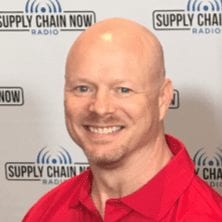
Beau Groover is Founder and President of The Effective Syndicate. He has been working with manufacturing and operations-focused organizations for over 20 years, primarily focused on developing bullet-proof processes and teams that are built to win. Beau has helped organizations save millions of dollars while also improving those companies’ customer experiences and building high-performing teams that continue to drive the business forward. He has developed his approach and strategy over years of working with some of the biggest companies in multiple levels within the organizations, including The Coca-Cola Company, Nordson Corporation, and Westrock (formerly RockTenn). Just prior to launching The Effective Syndicate in 2015, Beau served as the Director of Lean Supply Chain at Serta Simmons Bedding, LLC. Connect with Beau Groover on LinkedIn and learn more about The Effective Syndicate here: https://www.theeffectivesyndicate.com/
